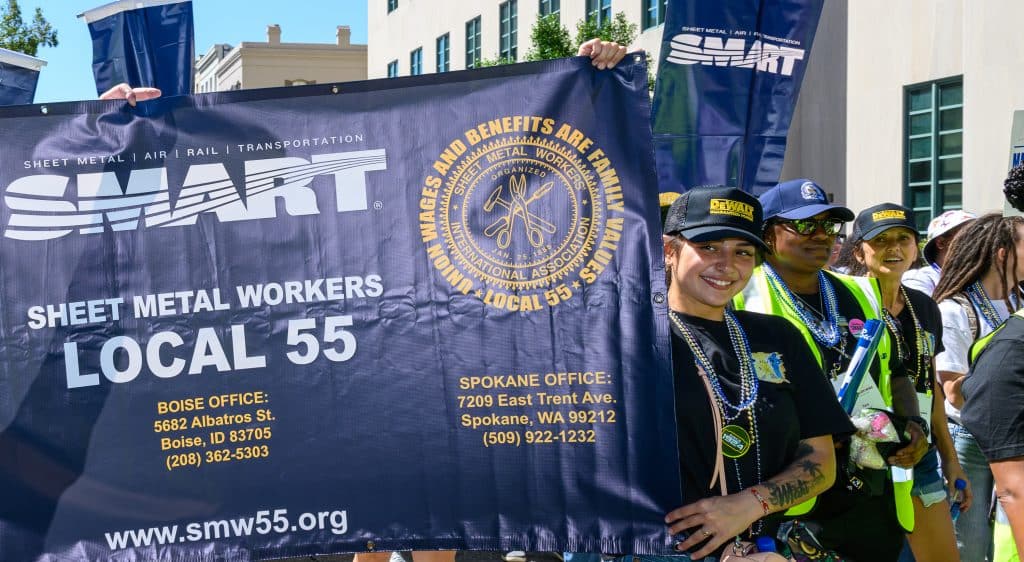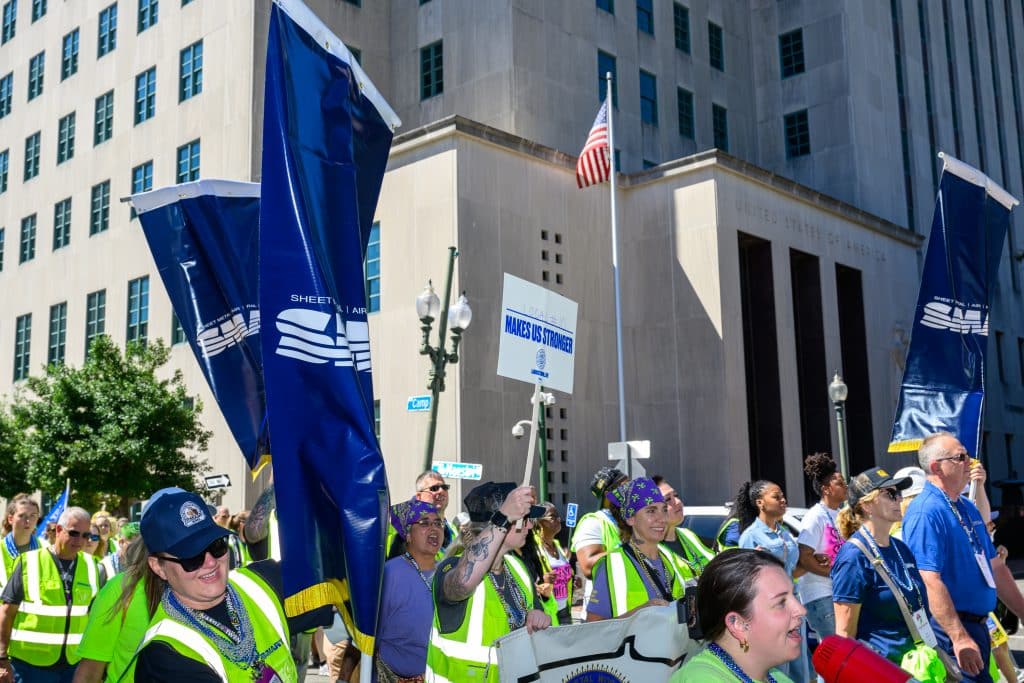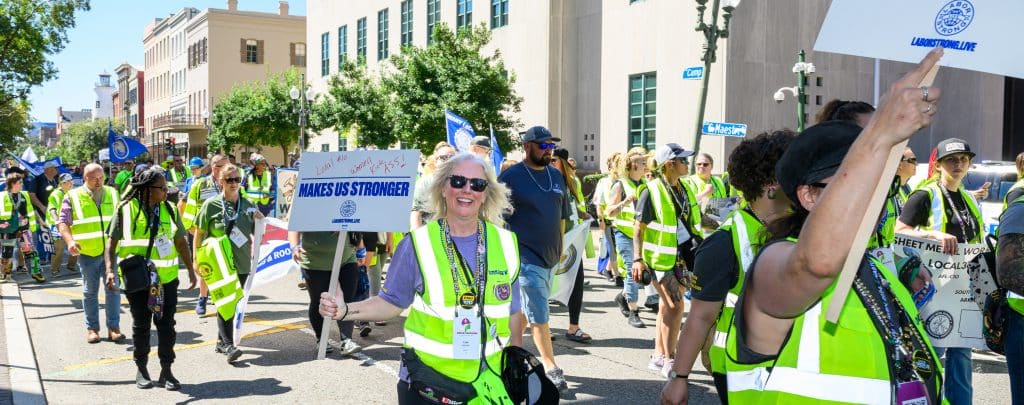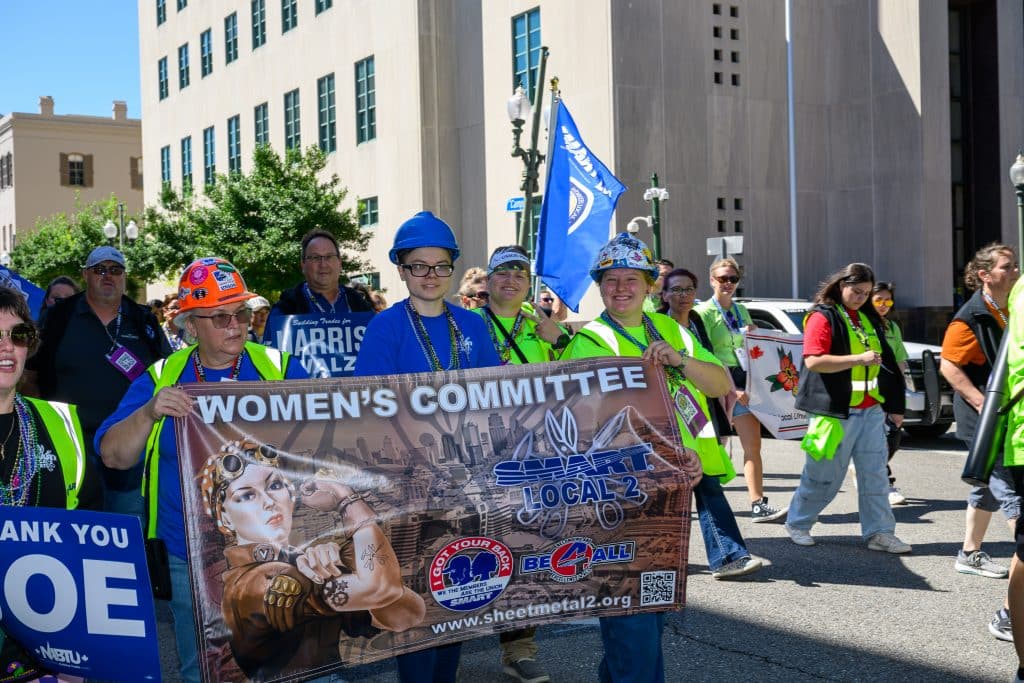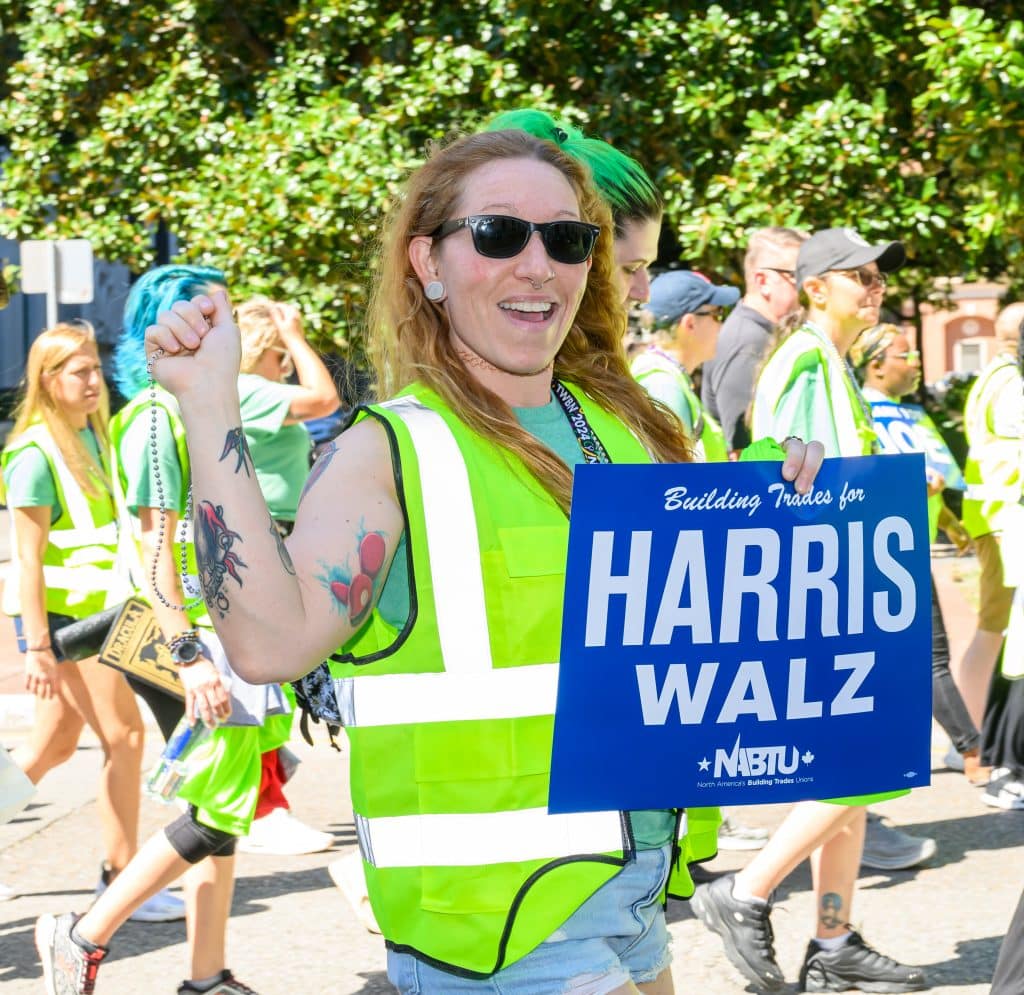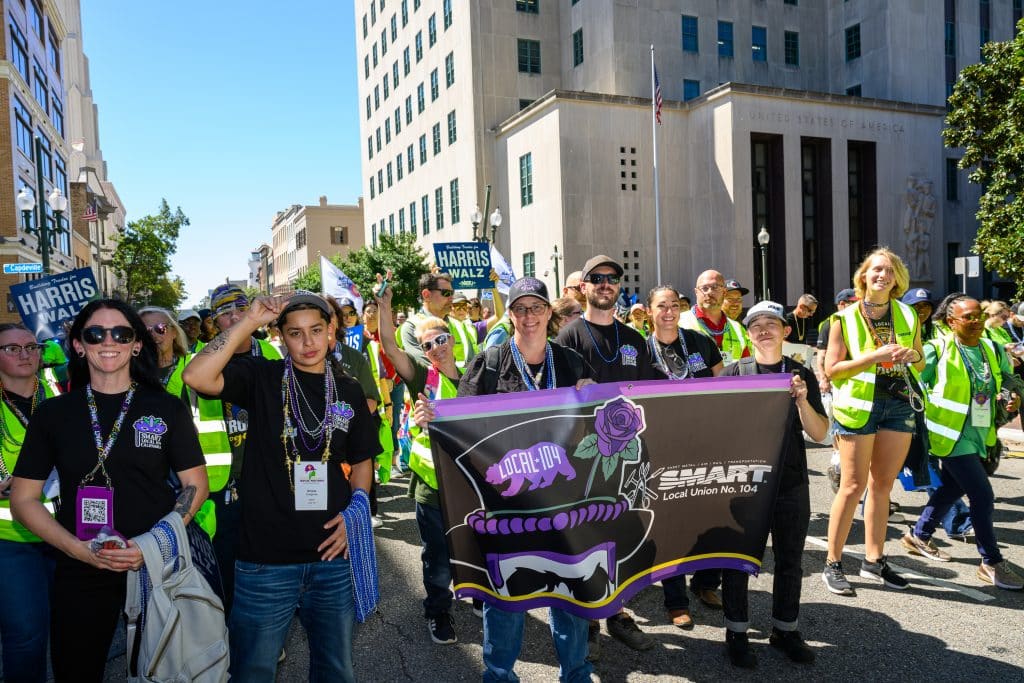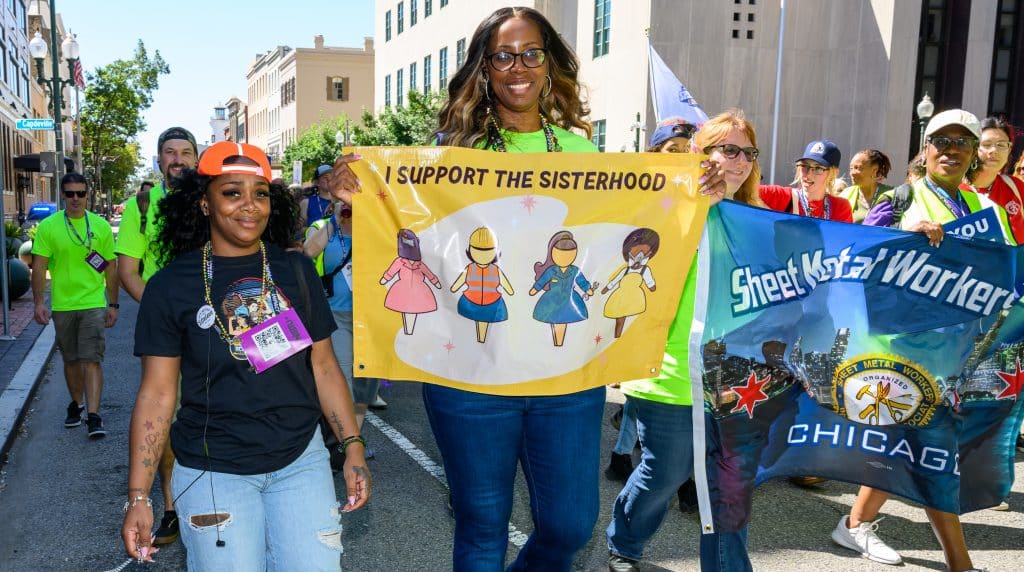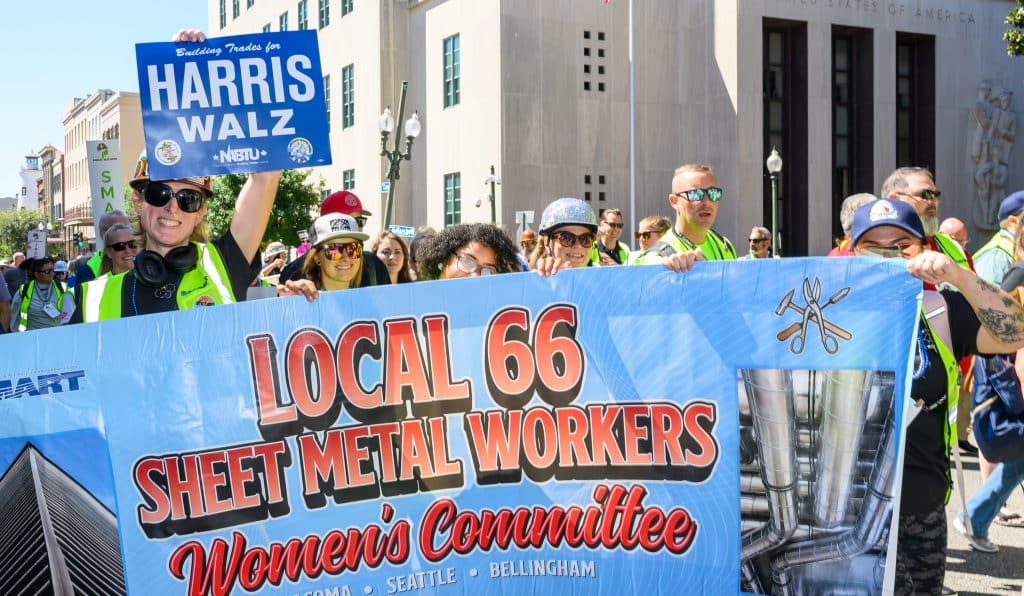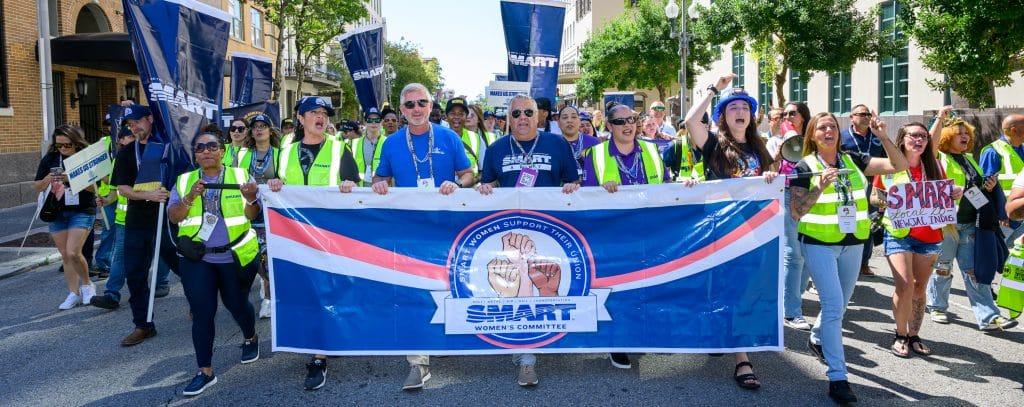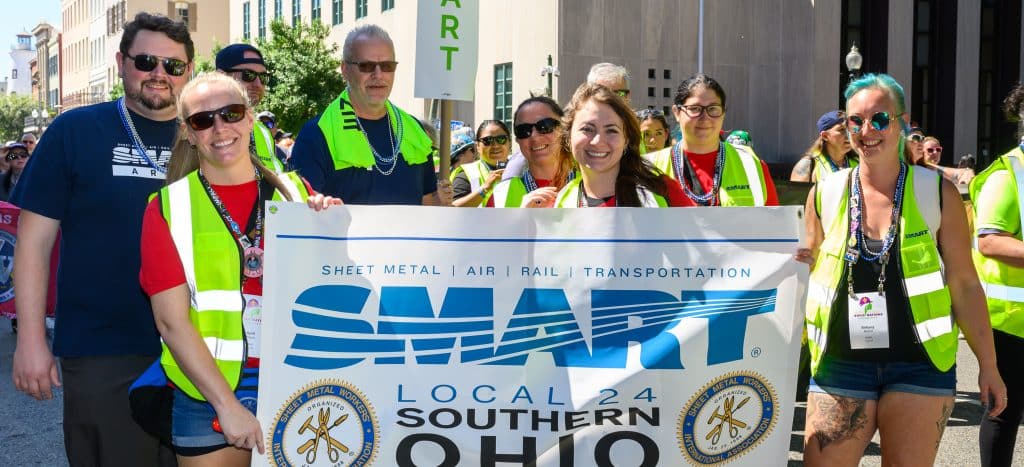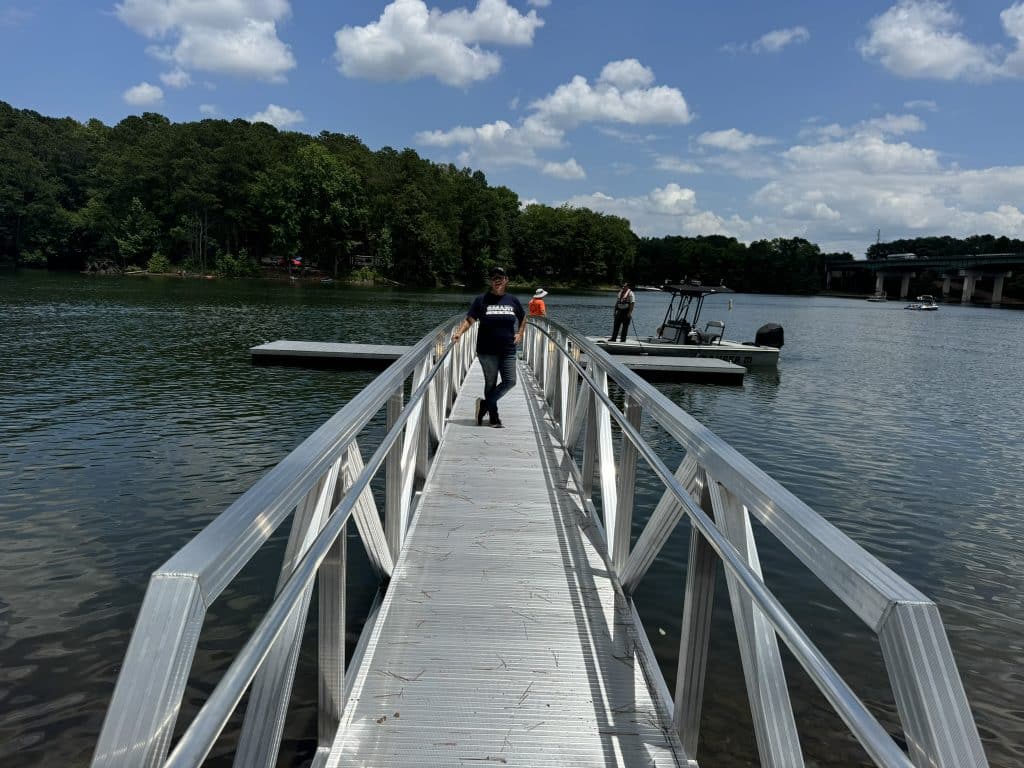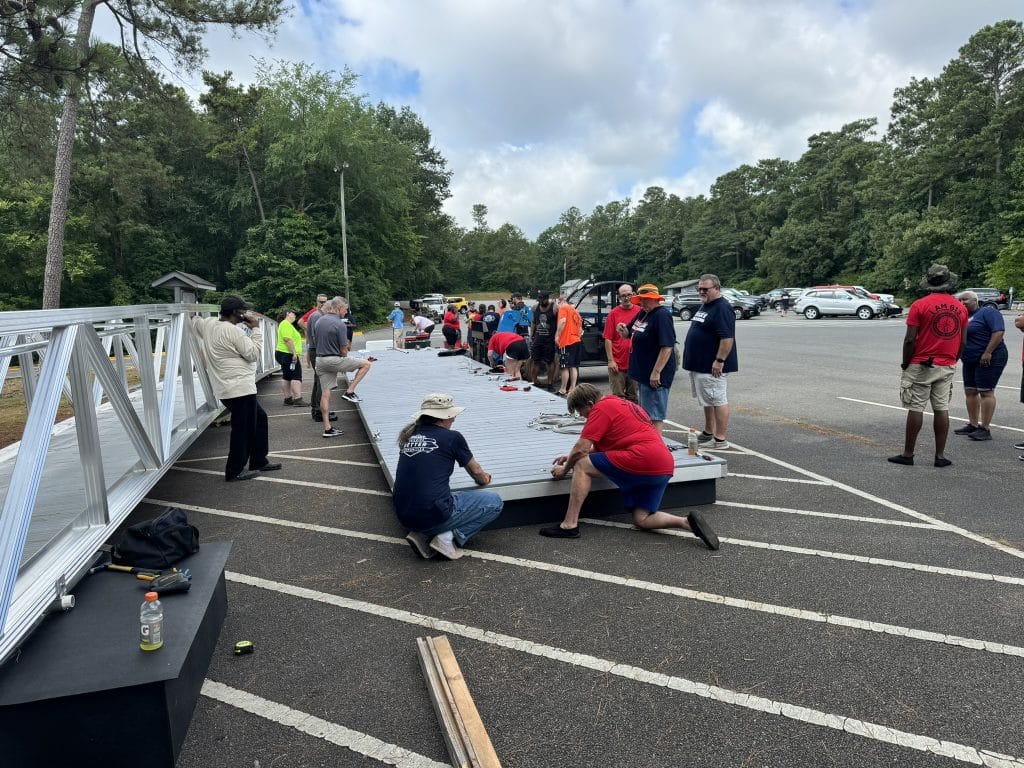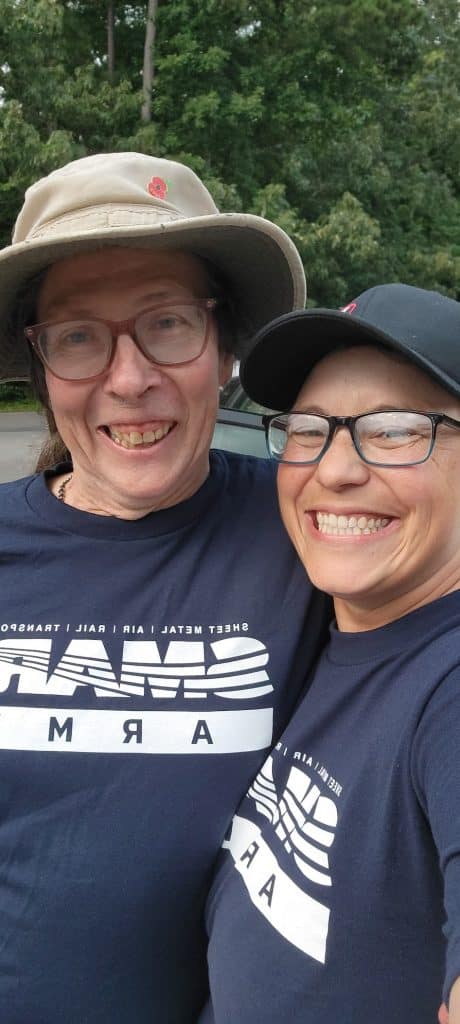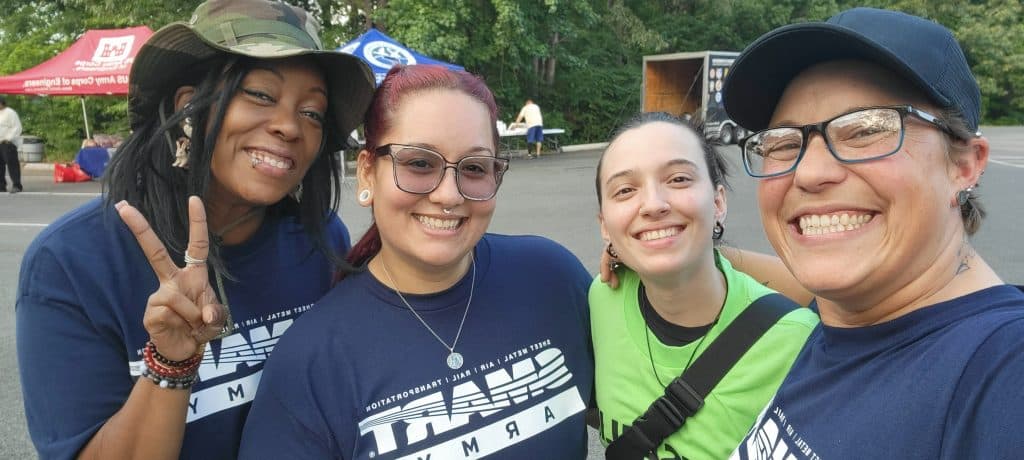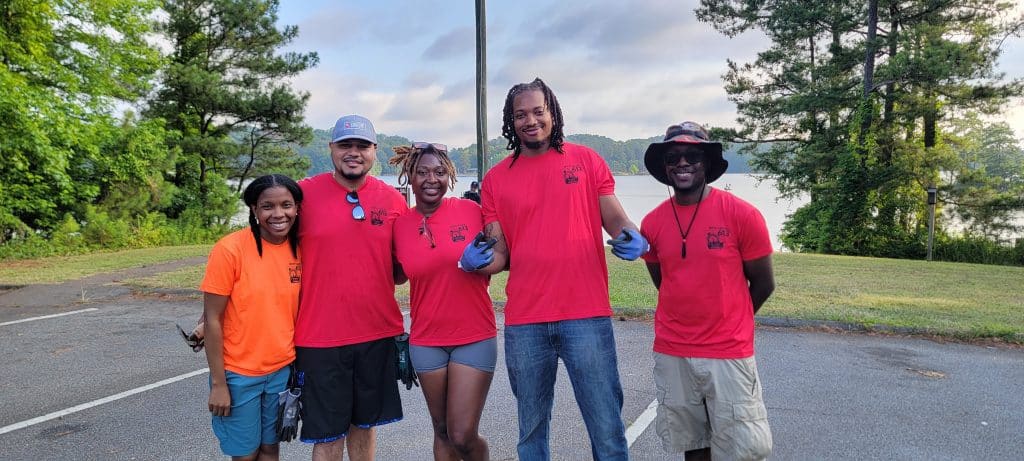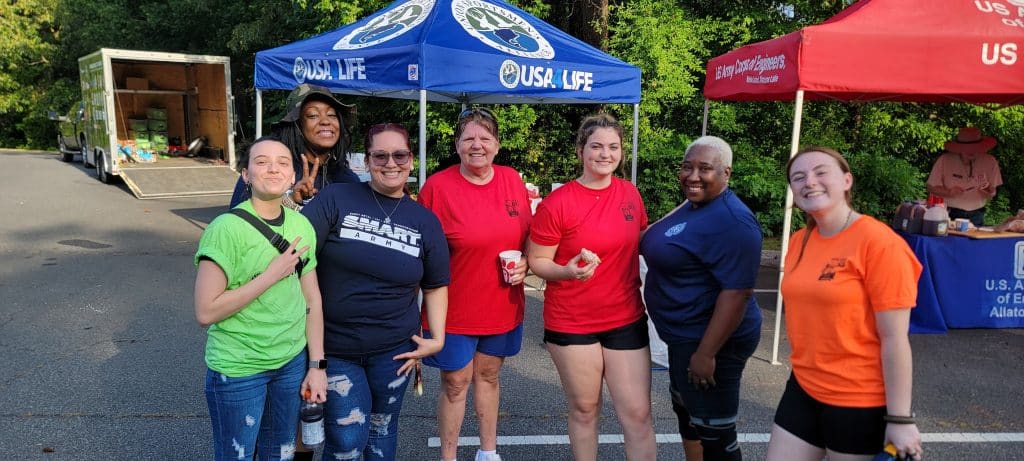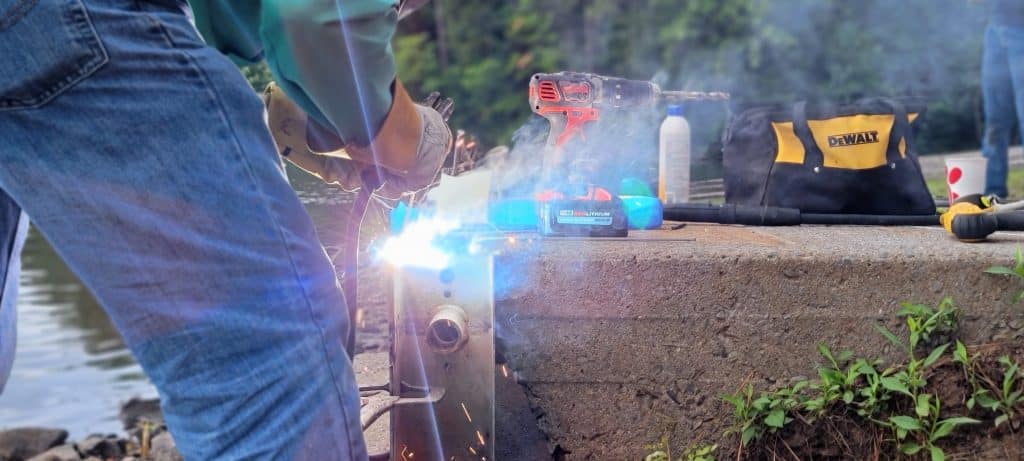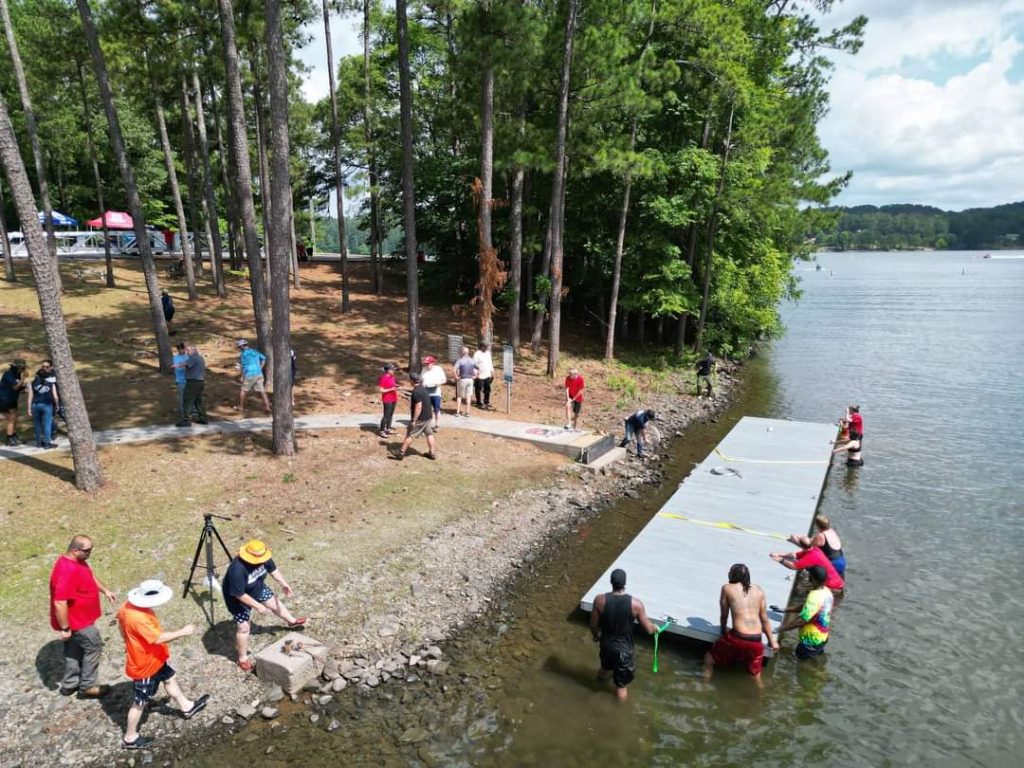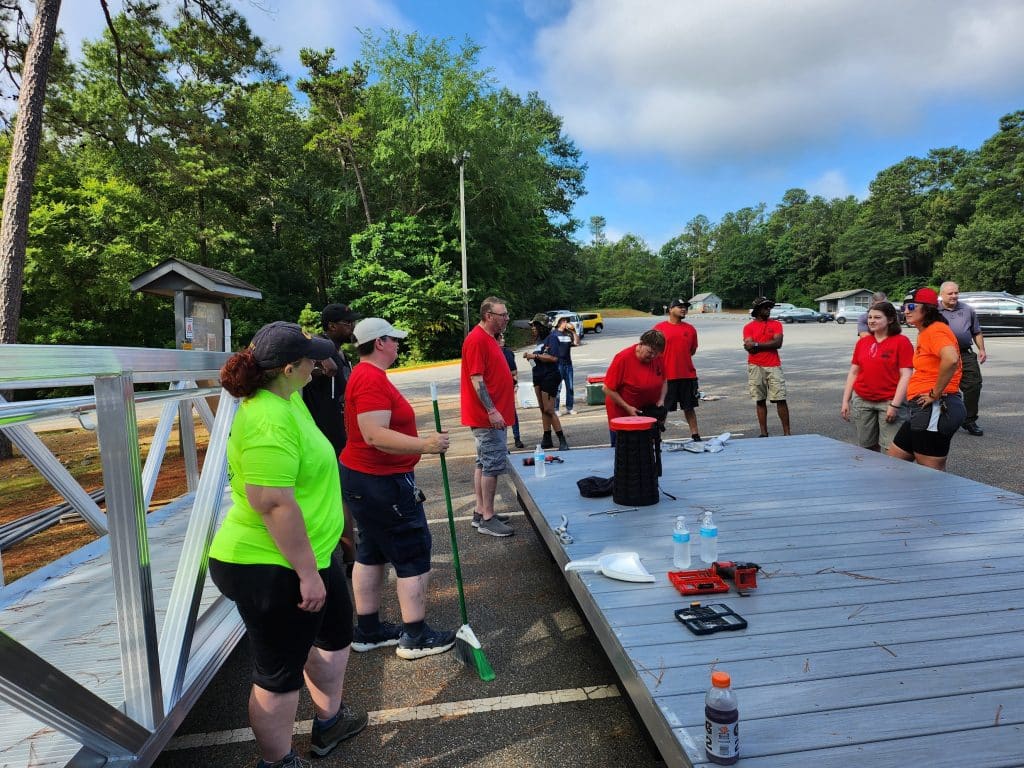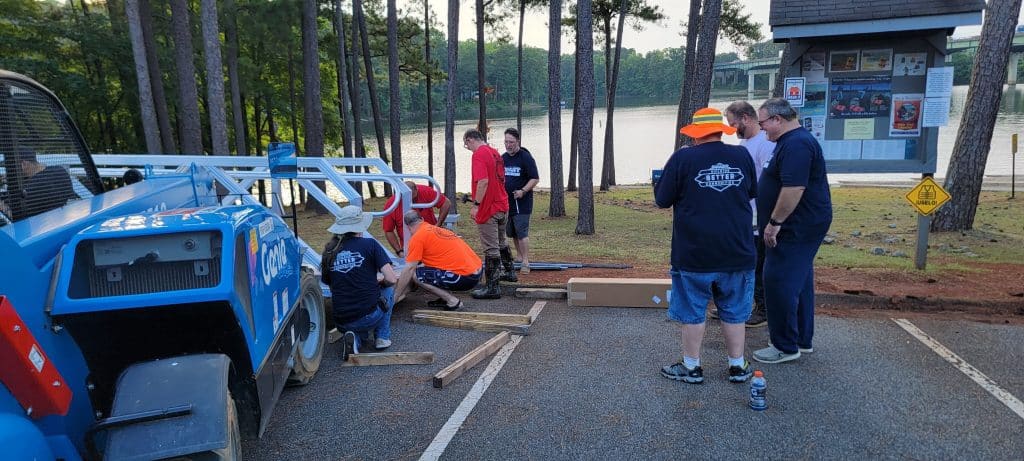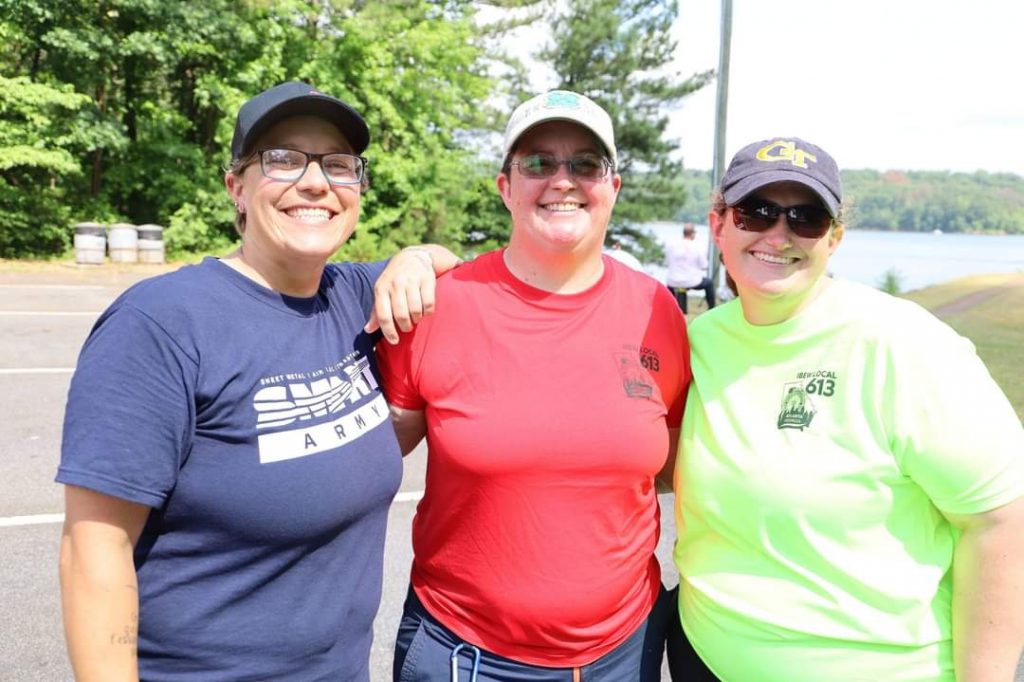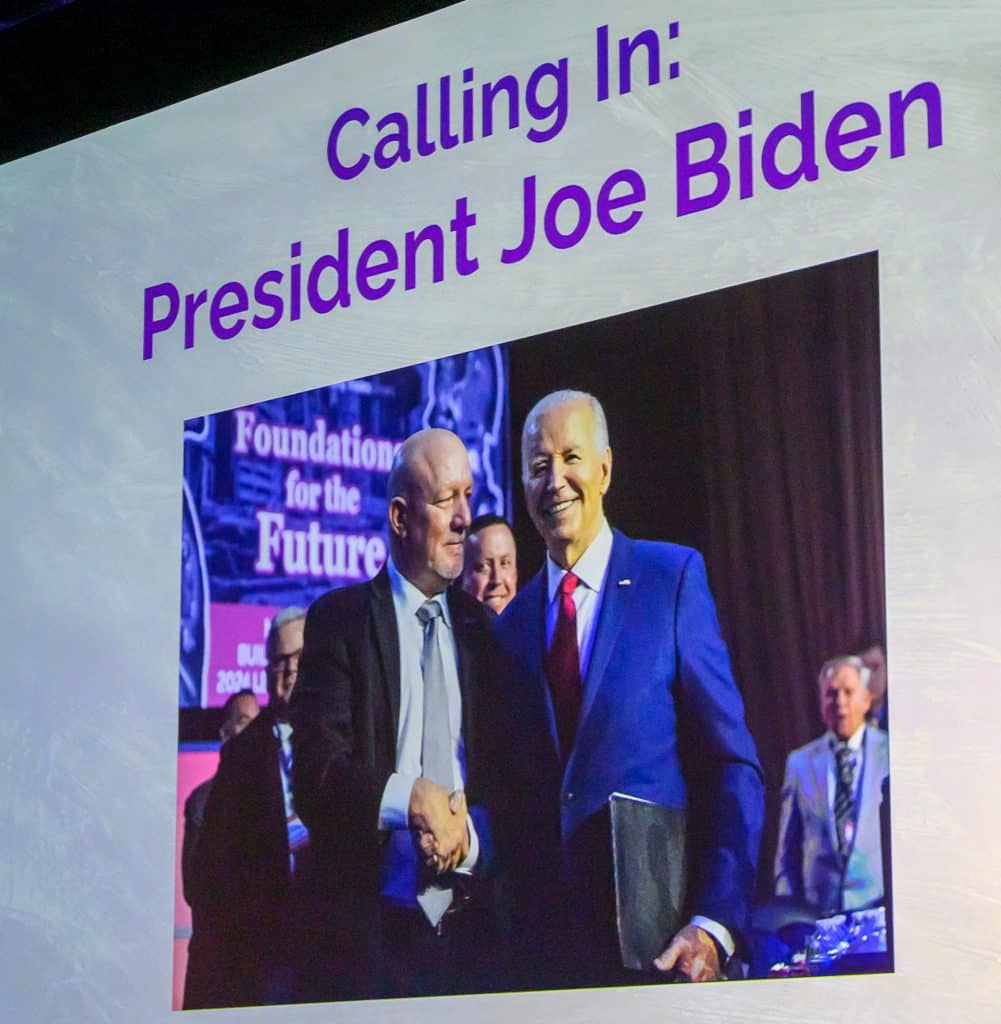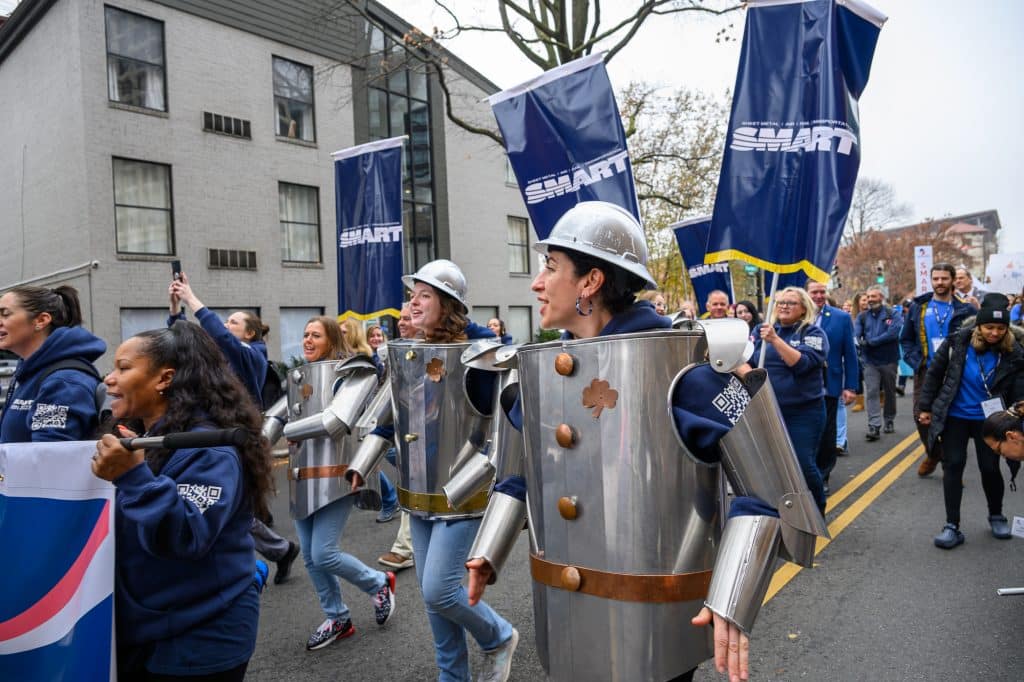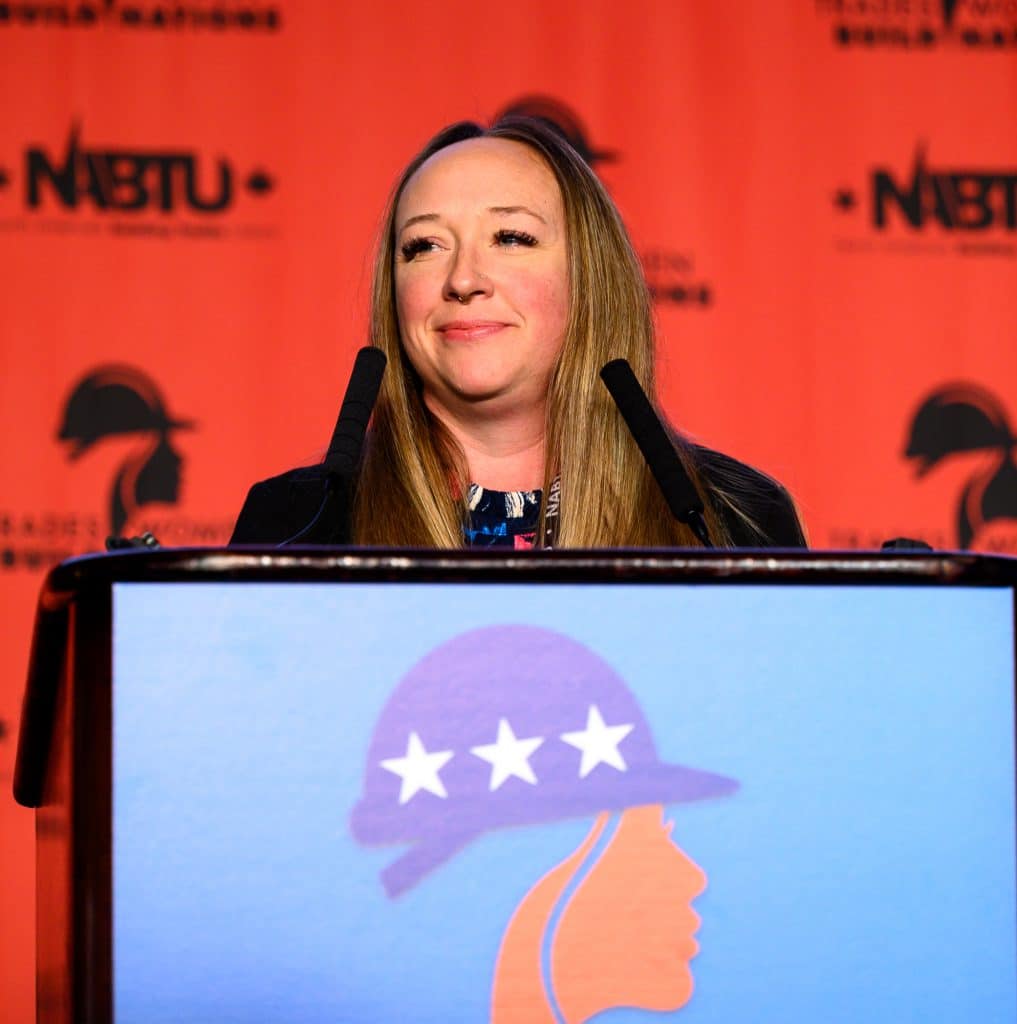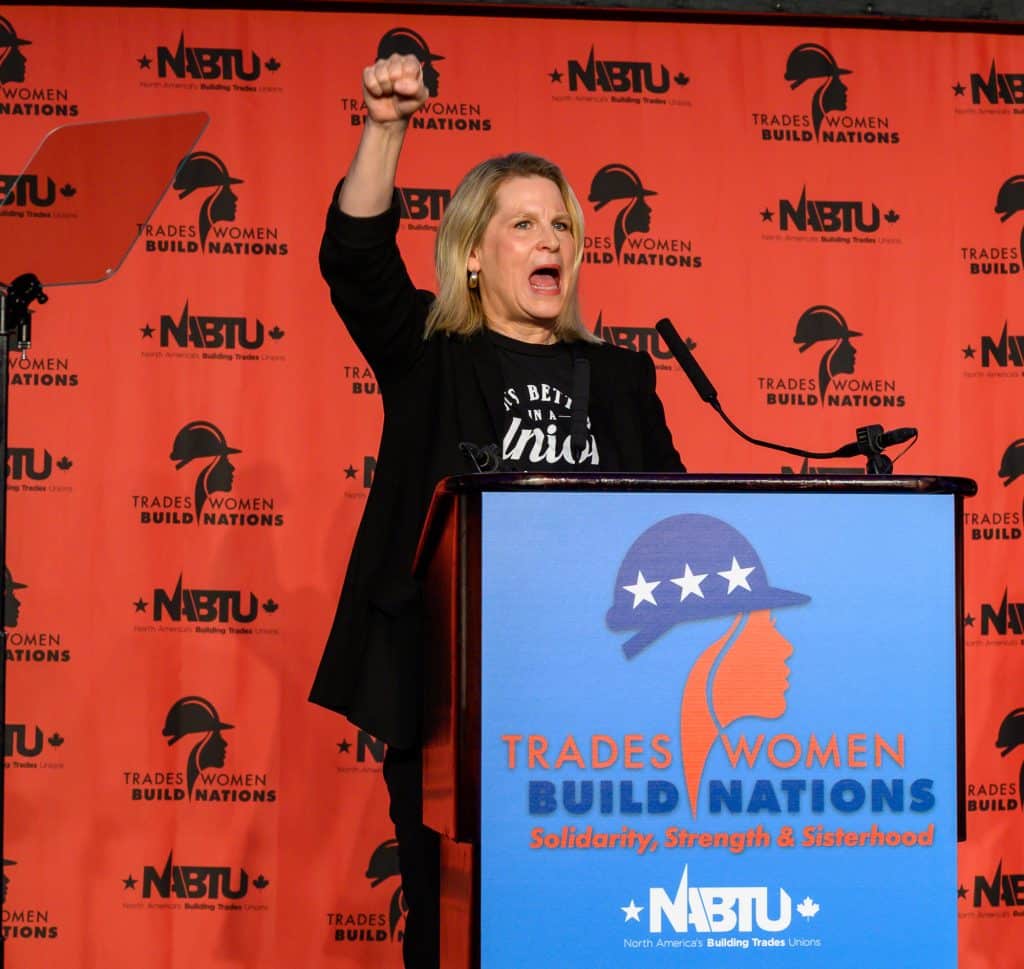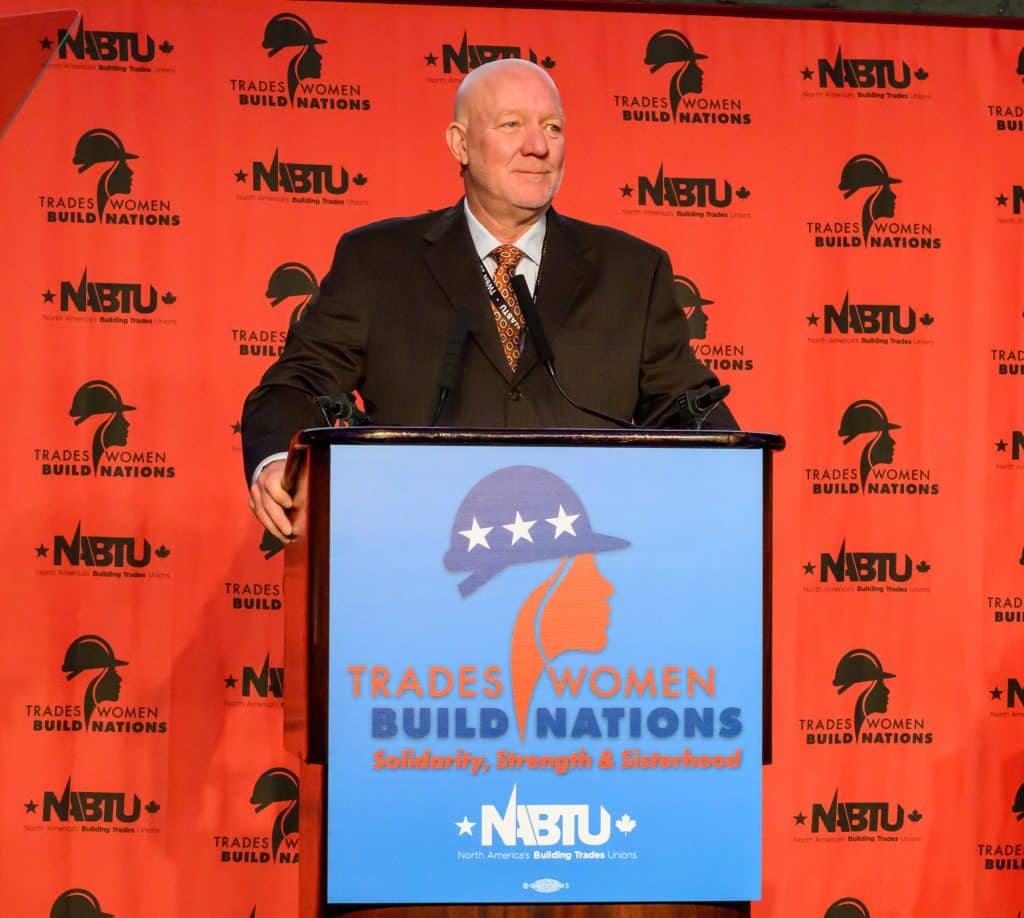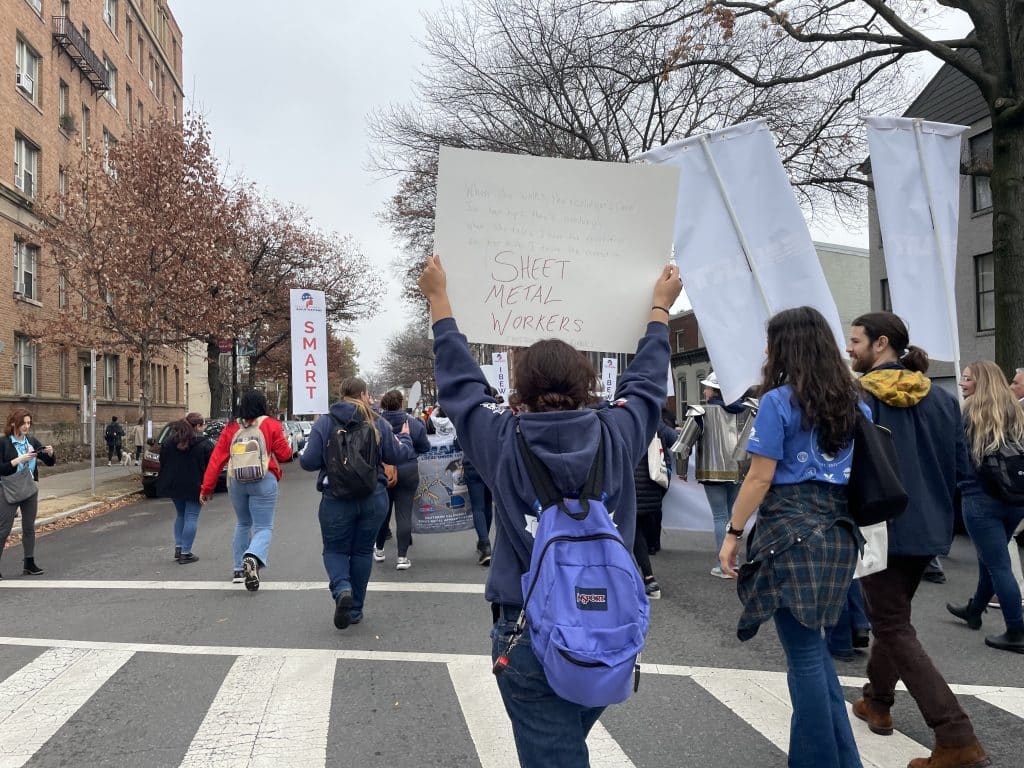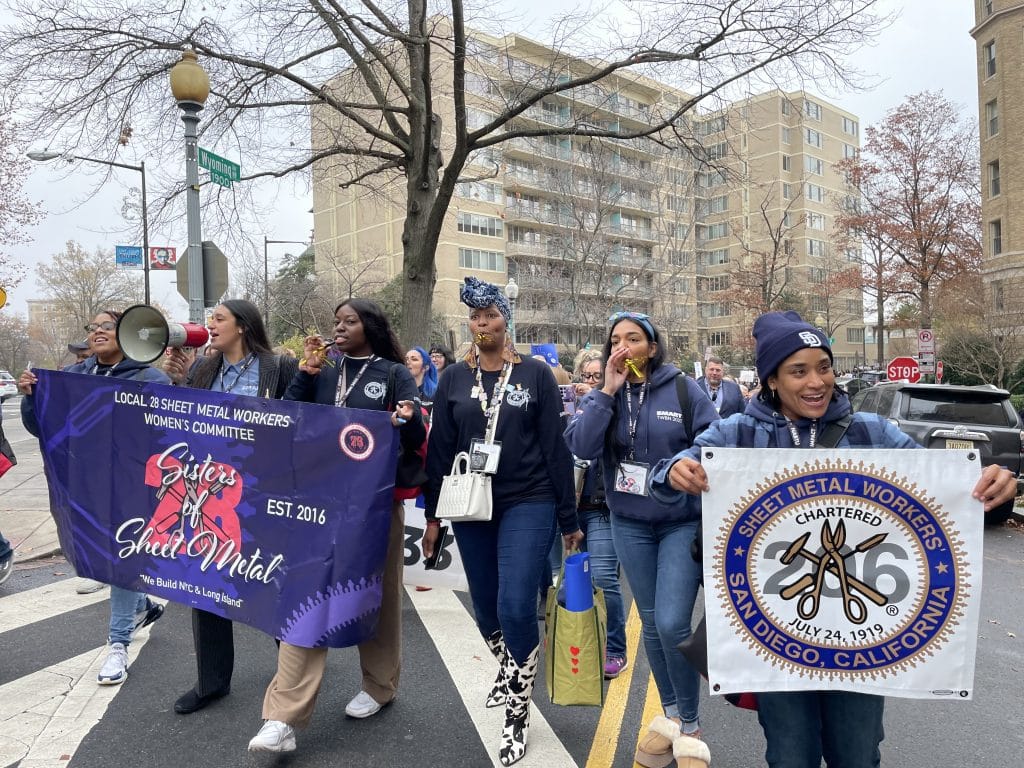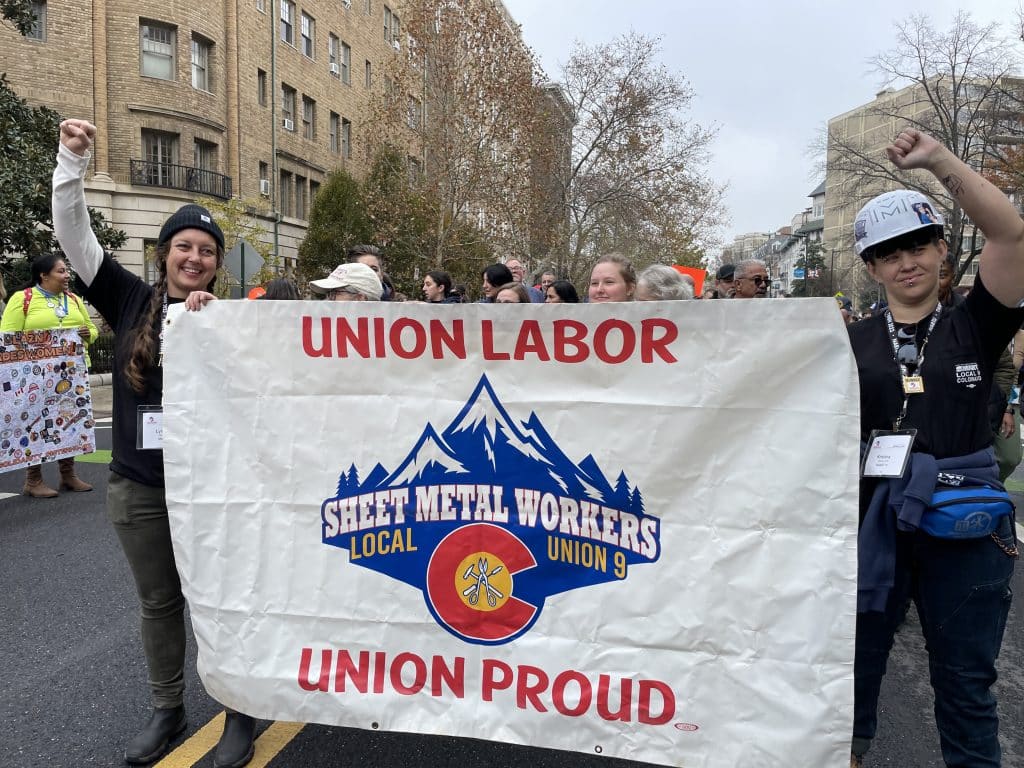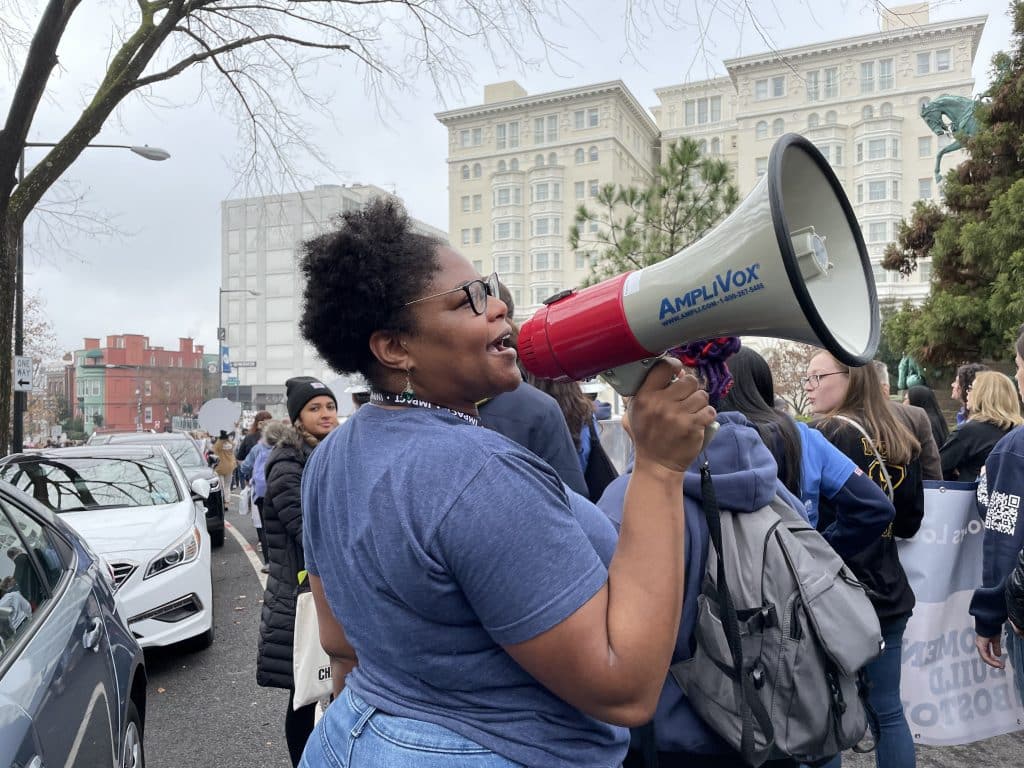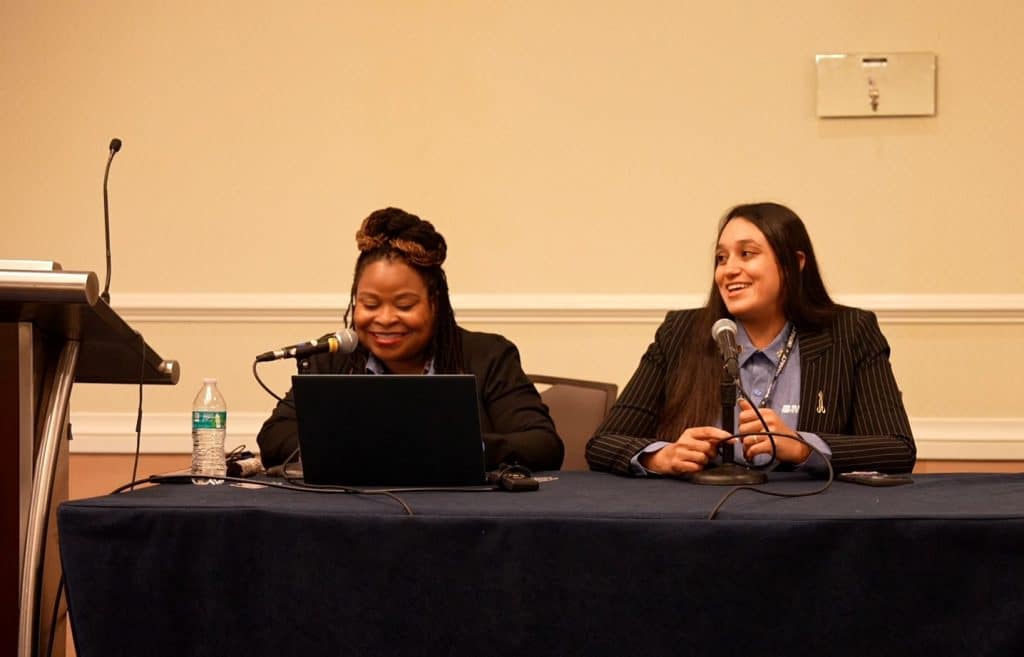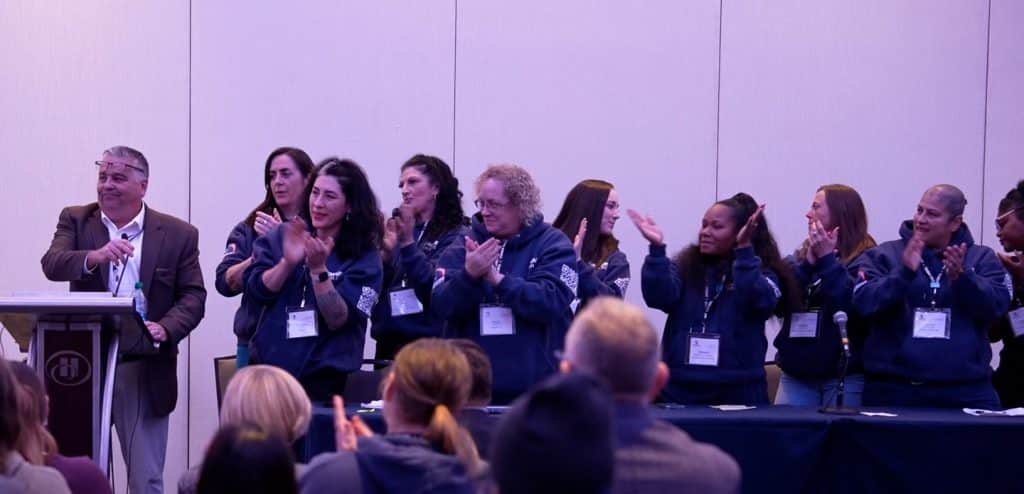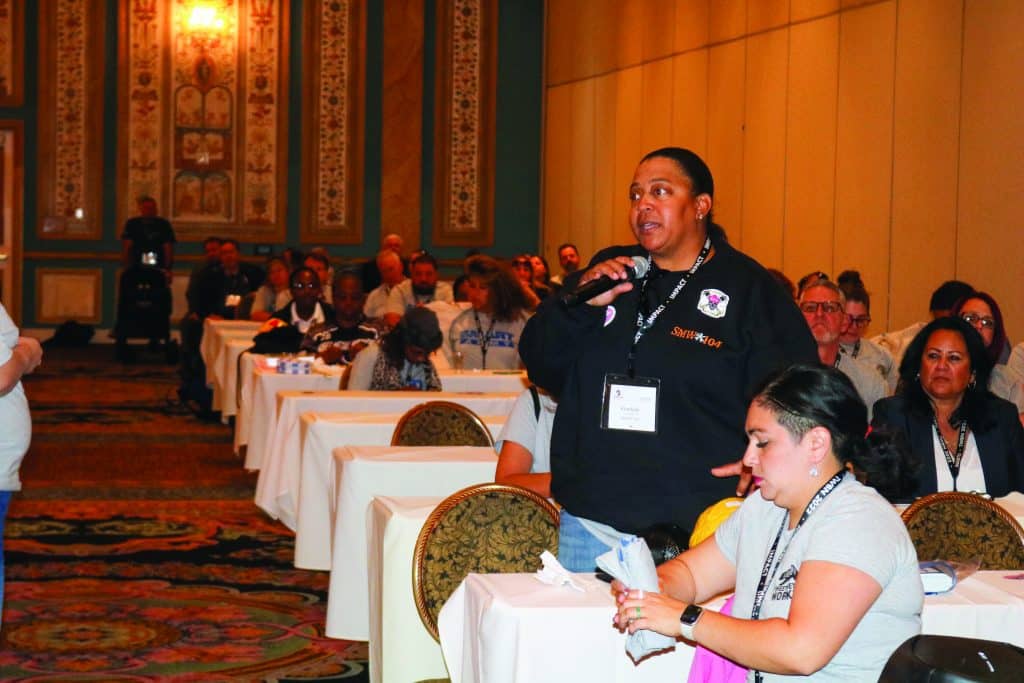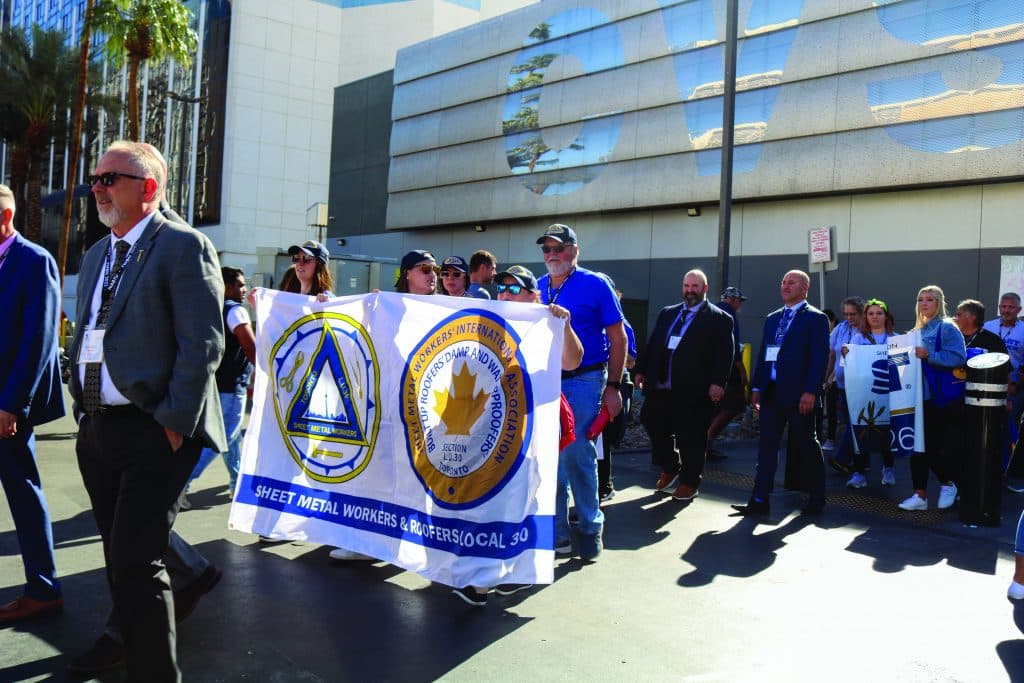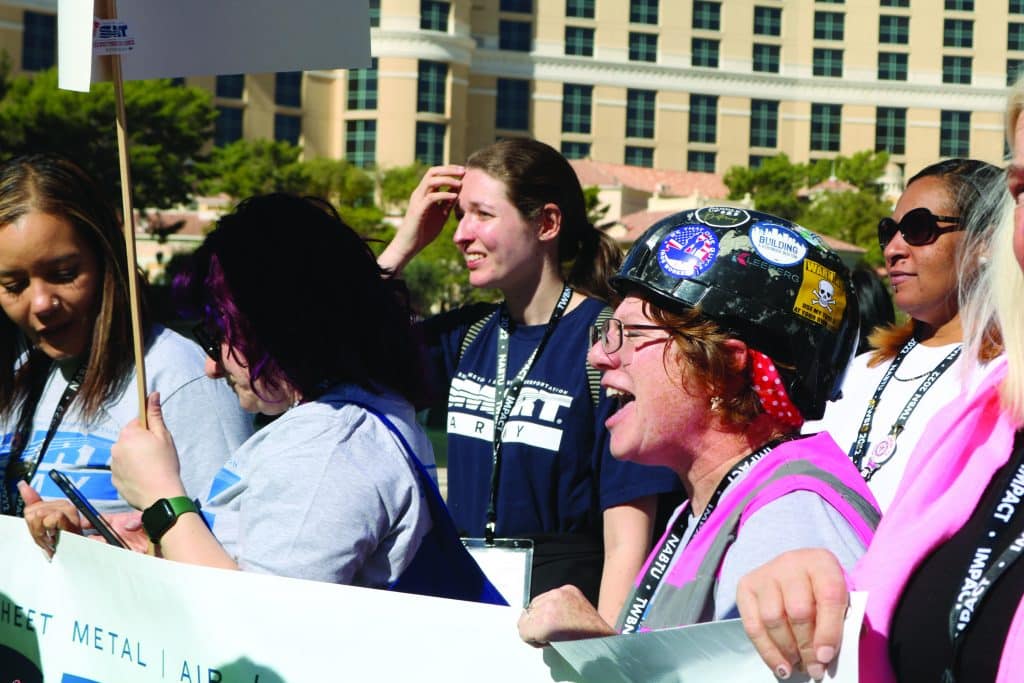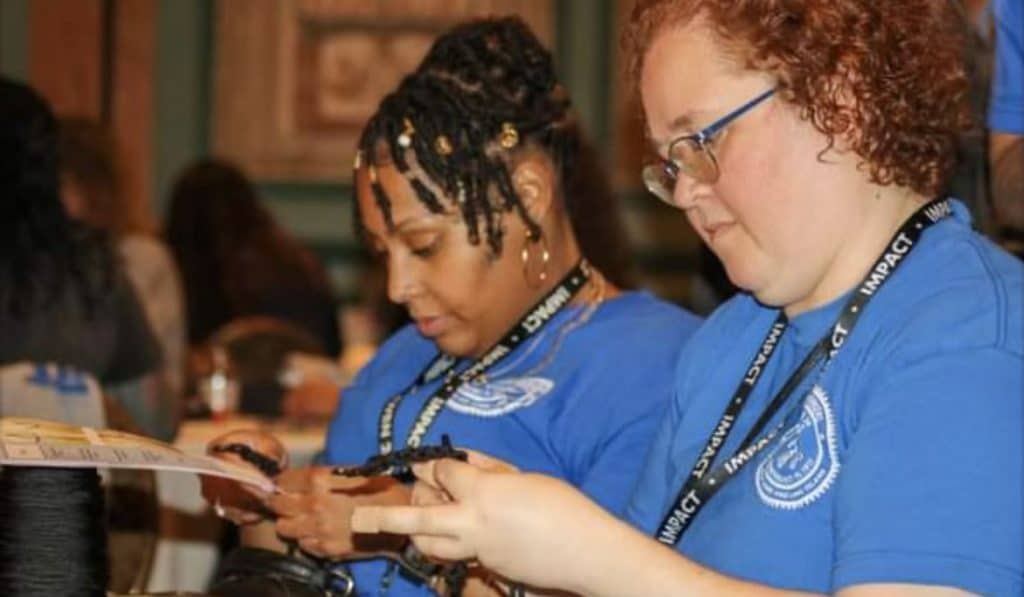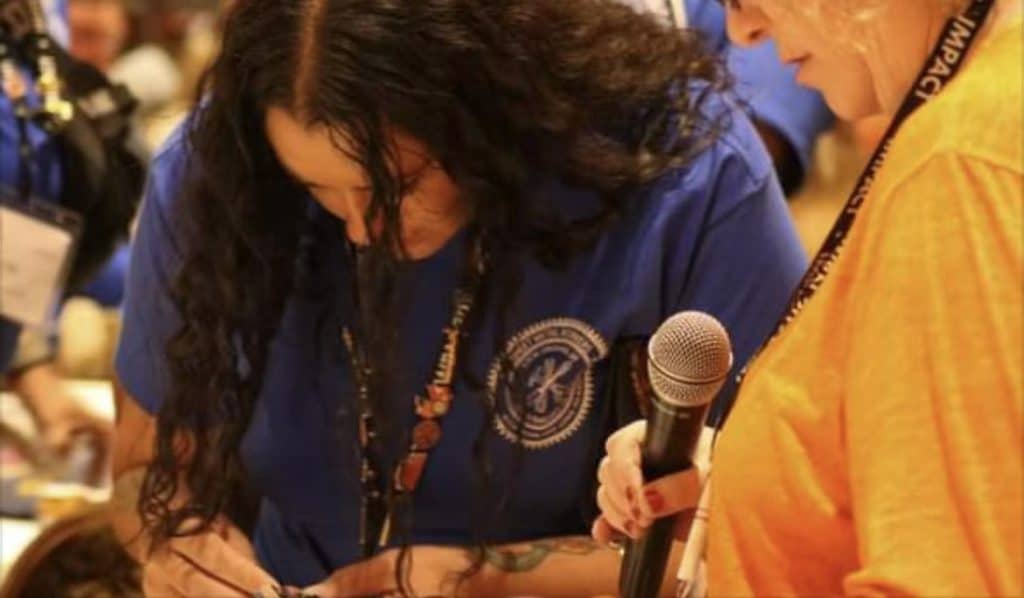More than 420 SMART sisters and allies from 47 local unions and regional councils descended on New Orleans, Louisiana, from September 27–29 for the 2024 Tradeswomen Build Nations conference. Joined by approximately 5,000 fellow union sisters and supporters, these trailblazing women put the strength of the labor movement on full display — marching through the streets of New Orleans, spreading the word about good, union jobs and sending a resounding message of unity and solidarity.
“‘Superheroes are men,’ they say,” former Acting United States Labor Secretary Julie Su told attendees during Saturday’s plenary session. “Well, standing here in a room full of tradeswomen, I know women can be anything.”
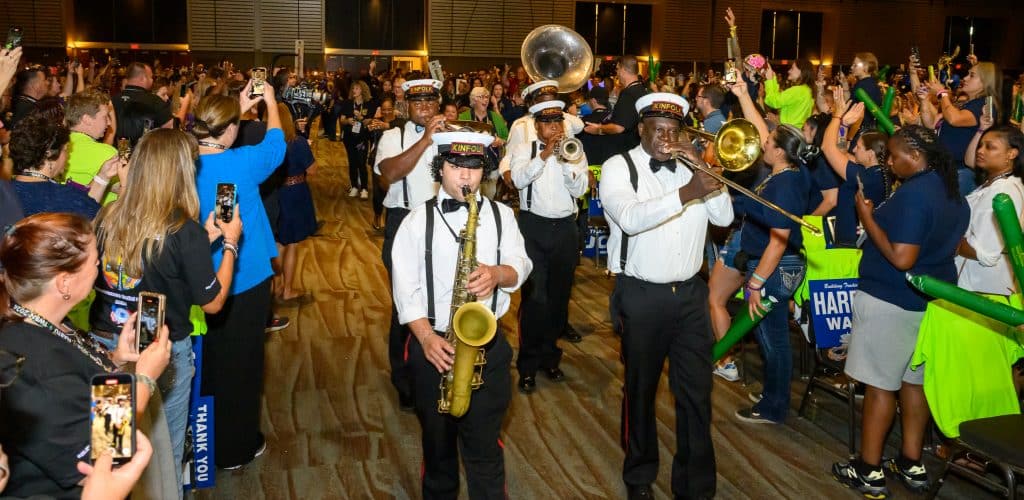
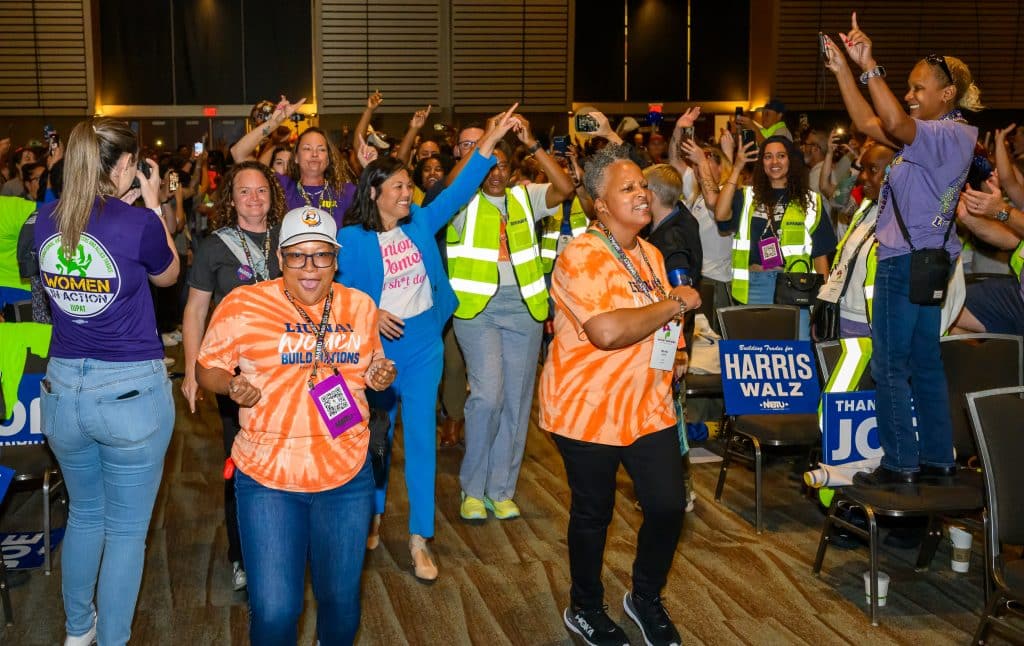
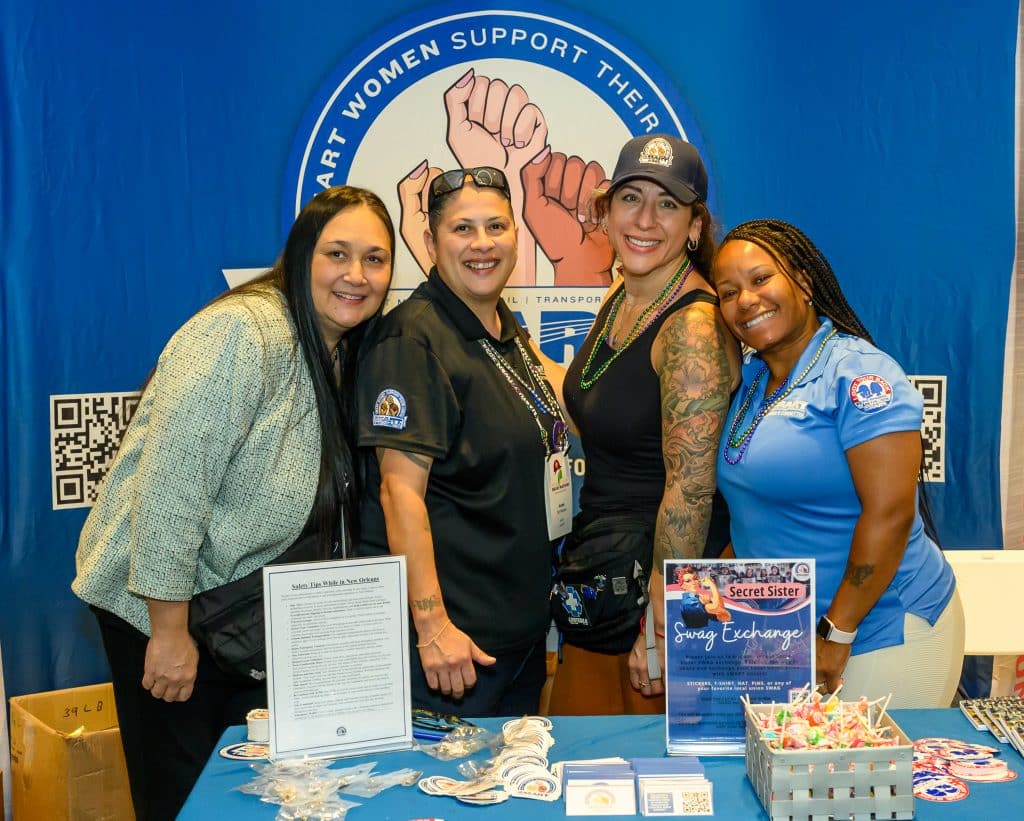
Plenary speakers highlight progress, commit to further growth
Plenary speakers addressed Tradeswomen Build Nations attendees on Saturday and Sunday morning, overviewing the enormous progress tradeswomen have made in North America — exemplified by the extraordinary growth of the TWBN conference itself — and making clear that union sisters have a crucial role to play in continuing to build our two nations.
North America’s Building Trades Unions President Sean McGarvey discussed NABTU’s commitment to bringing more women into the unionized building trades, and the historic role recent legislation has played in helping turbocharge that effort.
“Let the good jobs roll isn’t just a catchy slogan — sisters and allies, we’re in the business of changing lives,” he said. “Each and every one of you is living, breathing proof of [our] tremendous progress.”
Led by union tradeswomen, McGarvey said, the building trades are focusing on recruiting and retaining more women in our unions. That doesn’t only include efforts to reach out to women workers across North America — it means ensuring our sisters have correctly fitting PPE, pumping stations and cleaning facilities on the jobsite, as well as ongoing efforts to expand access to affordable, quality childcare.
“Sisters, we are meeting these challenges head-on,” he declared.
But we cannot talk about the progress the labor movement has made, McGarvey continued, without talking about the historic pro-union actions taken by the Biden-Harris administration — achievements that will benefit workers well into the second Trump administration. The infrastructure investments creating pathways for women in construction like never before. The clean energy jobs creating workforce demands from coast to coast. The investments in registered apprenticeship programs that make it easier for local unions to bring women into the trades.
Under Biden and Harris, NABTU affiliates collectively doubled their women membership, and the building trades realized the biggest net gain in members since 1952, McGarvey said. Now, we need to protect our gains and start organizing for the next election cycle.
“Our ability to make progress depends on leaders whose policies prioritize women and unions,” said McGarvey.
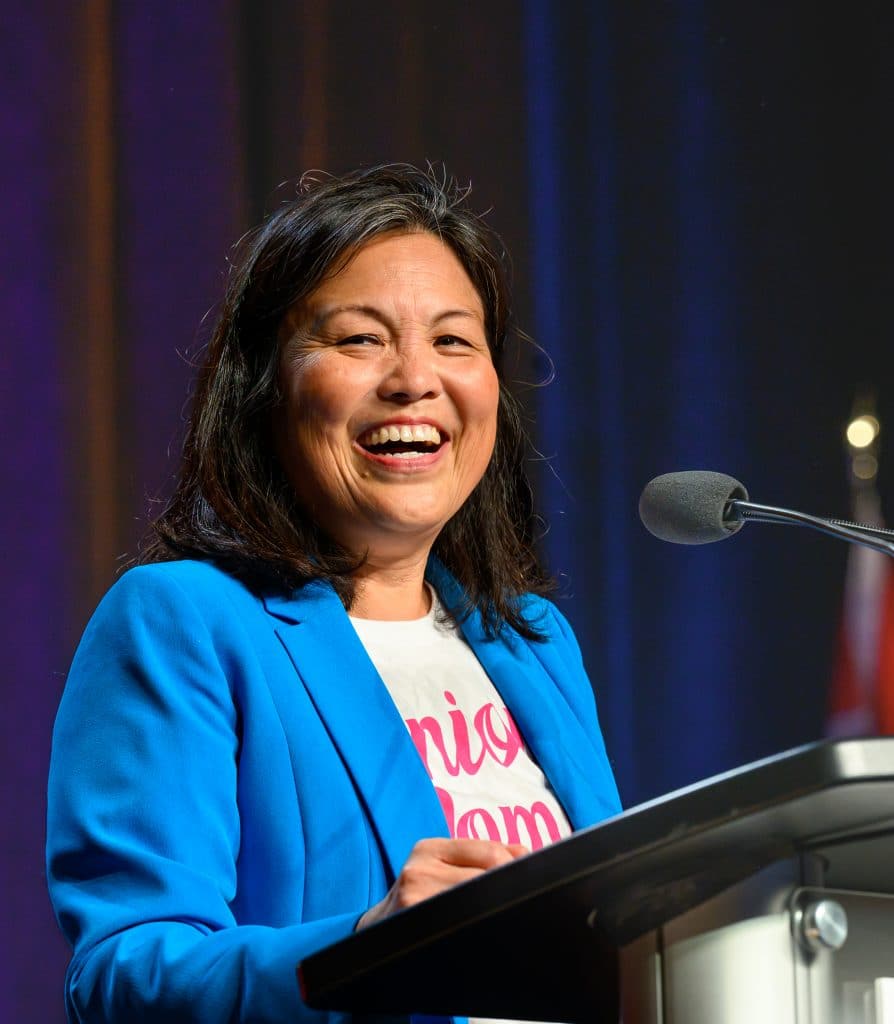
Former Acting Secretary Su’s tenure made her a historic leader of the U.S. Department of Labor, both as DOL deputy with former Secretary Marty Walsh and as a trailblazing pro-worker administrator herself. For unions in general, Su’s actions — implementing Biden’s executive order requiring project labor agreements on large federal projects, repealing the sham Industry-Recognized Apprenticeship Programs scheme, restoring OSHA capacity and beyond — are still making a difference in the lives of SMART members everywhere.
During its first term, the Trump administration crushed worker organizing, rolled back worker protections and attempted to undermine union apprenticeships. Under the Biden-Harris administration, Su told TWBN, the attitude was very different, and it reflected the DOL’s stance towards anti-worker actions of any kind: “Not on our watch.”
“You can be anything that you want to be,” she concluded. “Superheroes are not just in comic books and the movies.”
Finally, in a conference first, President Joe Biden called in live to speak to sisters and allies about the Biden-Harris administration’s commitment to union workers — and the continued progress tradeswomen stand to make with a Harris-Walz White House.
“When unions do well, studies show that ALL Americans do well,” Biden said.
Tradeswomen also heard from Dr. Christine Yu Moutier, chief medical officer of the American Foundation for Suicide Prevention; LIUNA General President Brent Booker; BlackRock Managing Director Anne Ackerly; Micron Technology Vice President of Procurement (Indirect and Real Estate) Heather Baldwin; Accelerator for America President/ CEO Mary Ellen Wiederwohl; a video address from actress Kerry Washington and others.
GP Coleman details International maternity leave program during SMART caucus
SMART General President Michael Coleman, General Secretary-Treasurer John Daniel, the SMART Women’s Committee and others joined SMART sisters for the annual SMART TWBN caucus, where Coleman announced a truly groundbreaking piece of news: SMART’s new International maternity leave benefit, jointly funded by SMACNA.
“I can tell you that we already have our maternity leave program in place, ready to launch,” Coleman said. “We believe this will provide the opportunity to not have people choose between having a career and having children.”
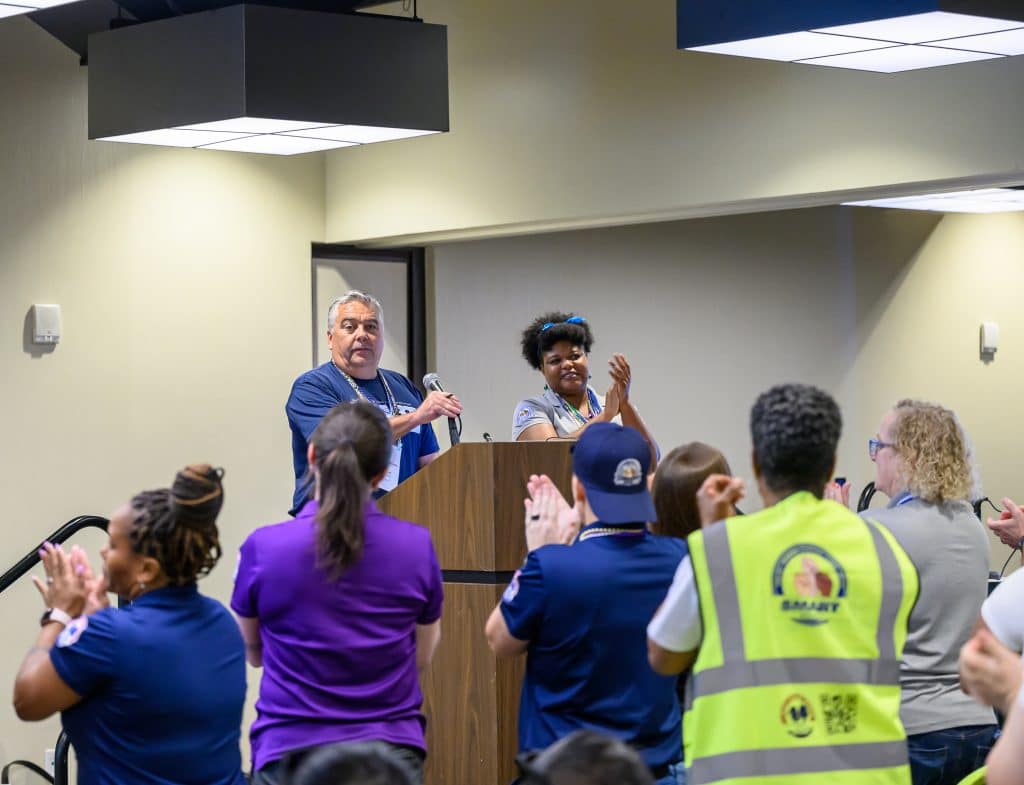
Coleman acknowledged the efforts of General President Emeritus Joseph Sellers, General Secretary- Treasurer Daniel and others in making this possible, specifically highlighting members of the Women’s Committee: “The work you do is incredible. You do it all on behalf of this organization and women in this trade.”
In 2019, the Women’s Committee proposed a resolution to double the union’s female membership by 2024. SMART Director of Special Projects Louise Medina reported that we have achieved that goal for journeyperson workers, doubling and retaining those members.
“We have made great progress in bringing more women into this trade,” Coleman said, vowing to continue that progress rather than stay content with what we’ve achieved.
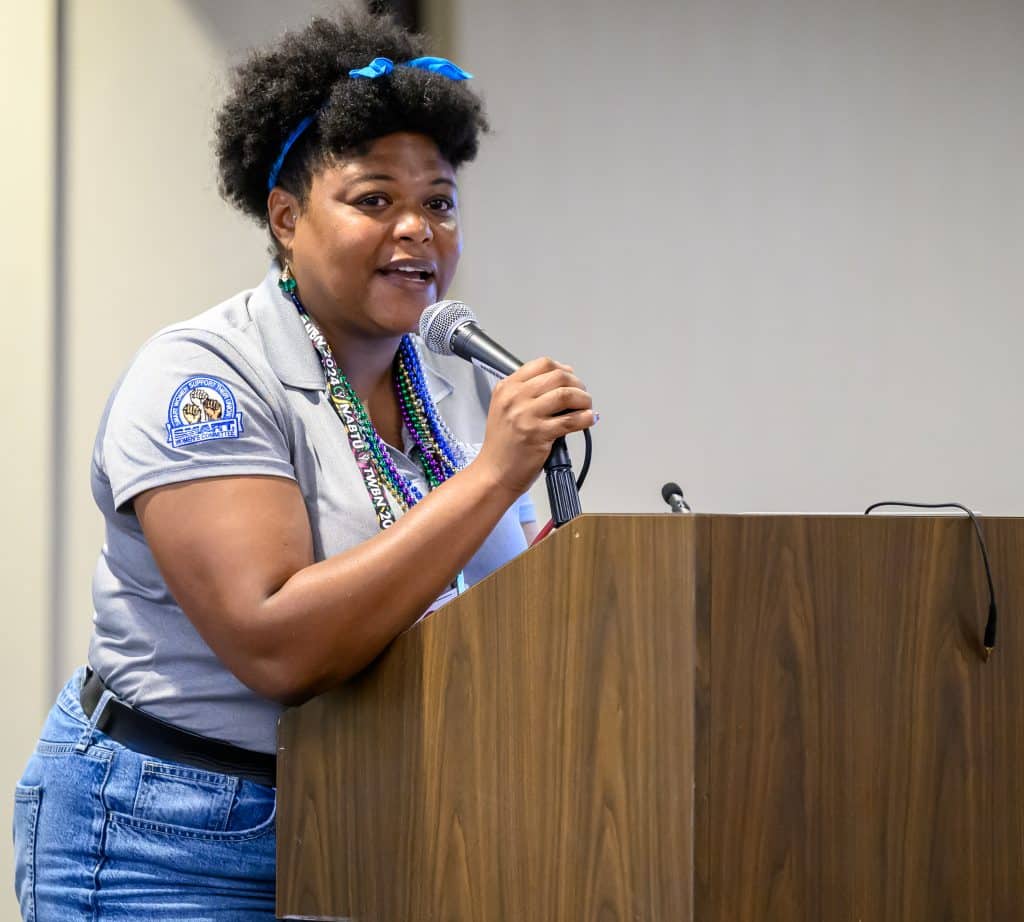
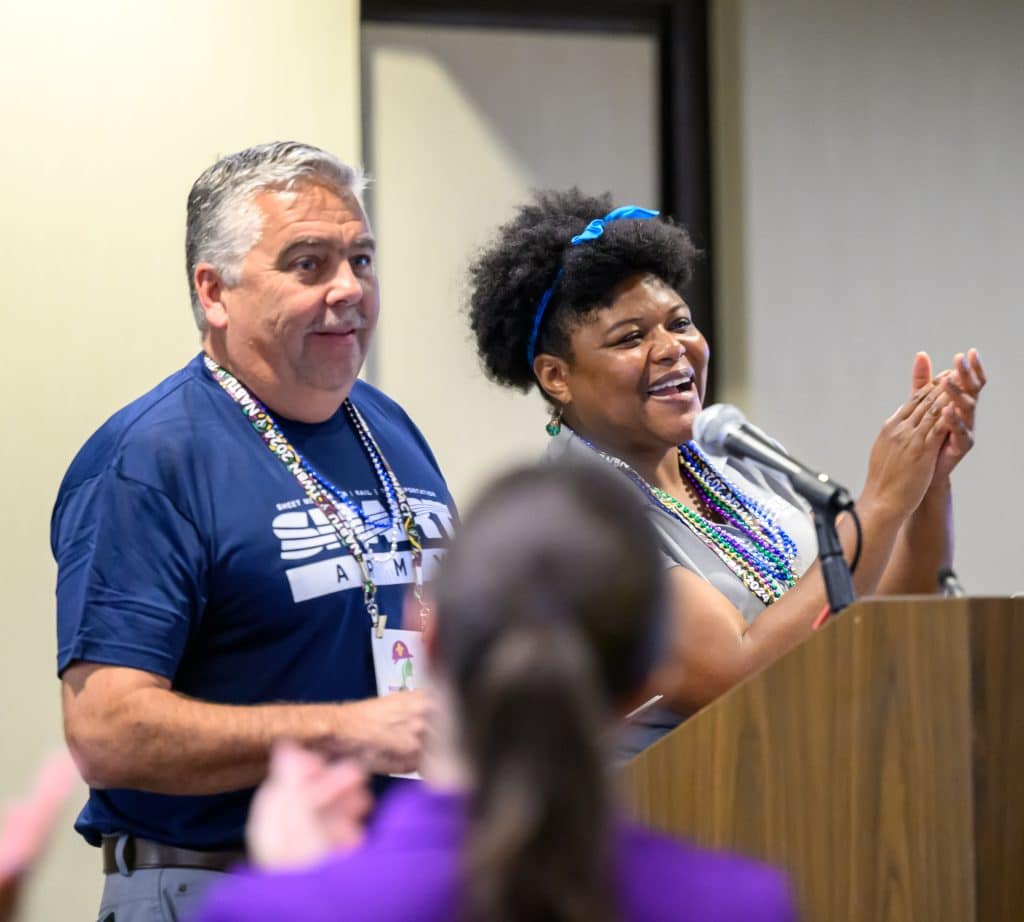
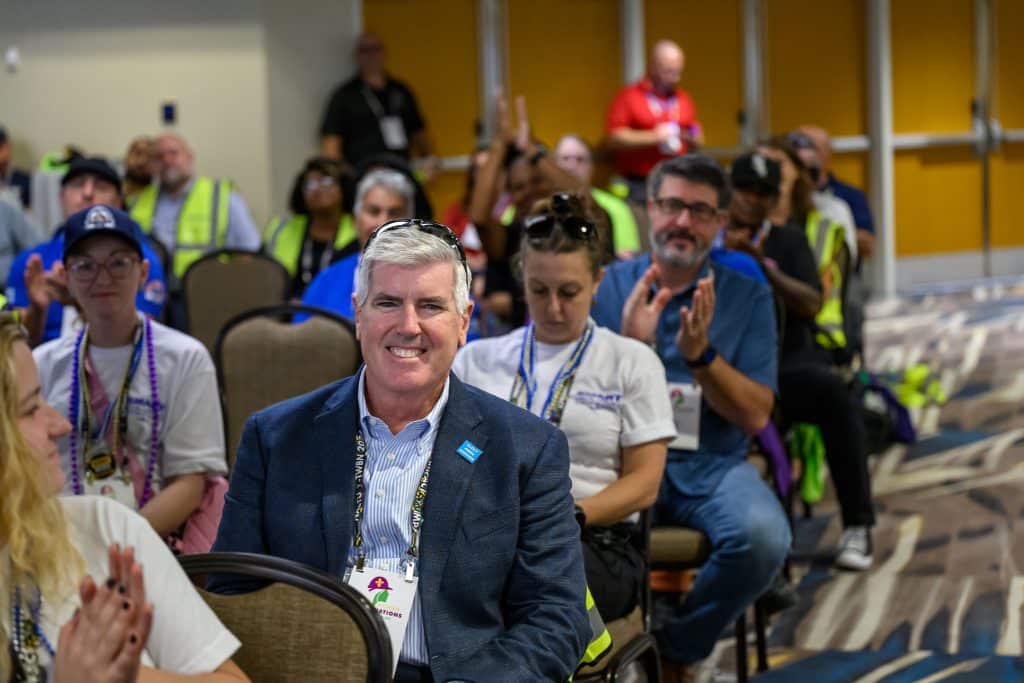
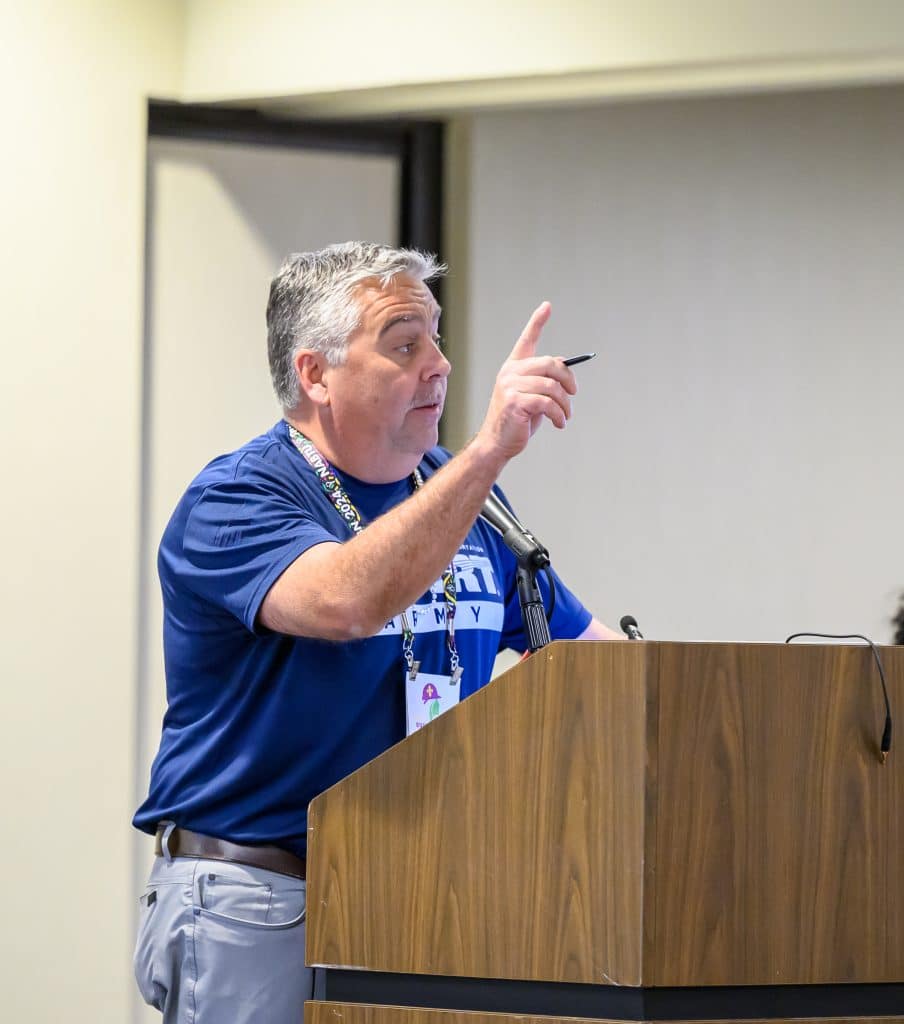
We have the momentum, he continued, pointing out that SMART was the fourth-most represented trade at TWBN 2024. Now, we need to seize that momentum and grow our ranks, including in our apprenticeship programs. The women at TWBN, and in local unions across North America, are our trade’s best advocates, he said.
“When I hear the stories of where you’ve come from and now where you’re at — even though it’s a struggle, those are stories that can help others.”
He went on: “We’re brothers and sisters. We have to take care of each other like brothers and sisters.”
Coleman ended by fielding questions from attendees during an open mic session, providing attendees with information about women in leadership, his personal story, childcare resources and more.
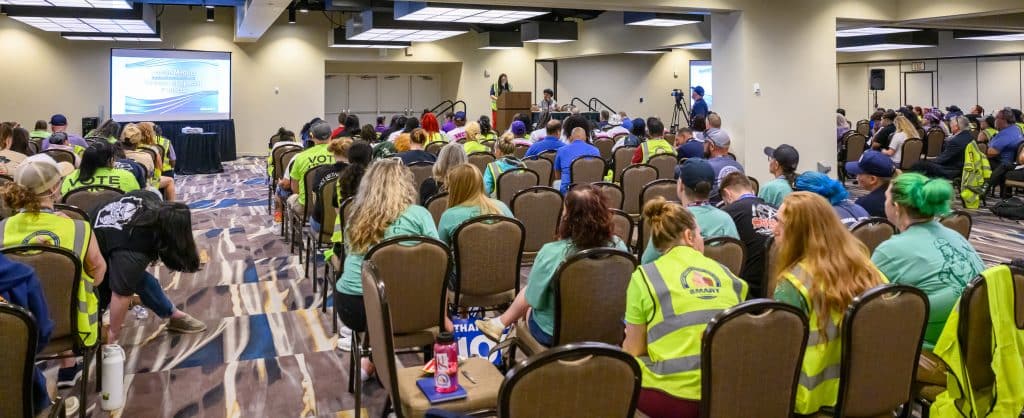
Earlier in the caucus, Women’s Committee subcommittees reported back to attendees on efforts to increase women in SMART, communicate with sisters in and outside of our union, develop leaders within our union and more. Sisters and allies heard from Tiffany Boiman, then deputy director of the United States Department of Labor’s Women’s Bureau, who outlined how the Biden-Harris DOL rejuvenated the bureau’s work to protect women and provide them with better access to fulfilling careers. Plus, the caucus gave members and allies the chance to network, bond and share their stories from across North America. Countless sisters shared that TWBN is a life-changing experience that they look forward to every year.
SMART sisters lead breakout sessions
Breakout sessions are an annual highlight of the Tradeswomen Build Nations conference — giving SMART sisters a chance to network, learn and build connections with their fellow tradesworkers. TWBN 2024 was no different in that regard, with SMART members both attending and helping lead a variety of breakouts.
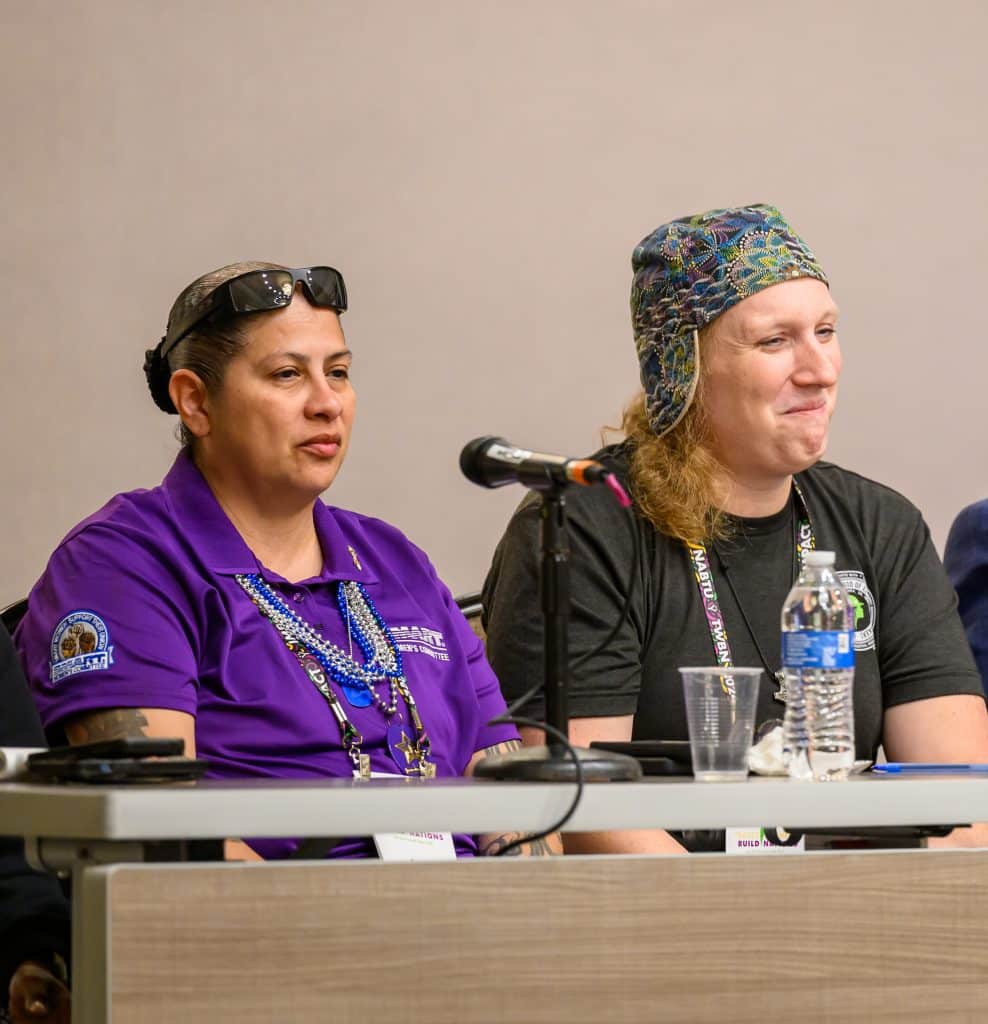
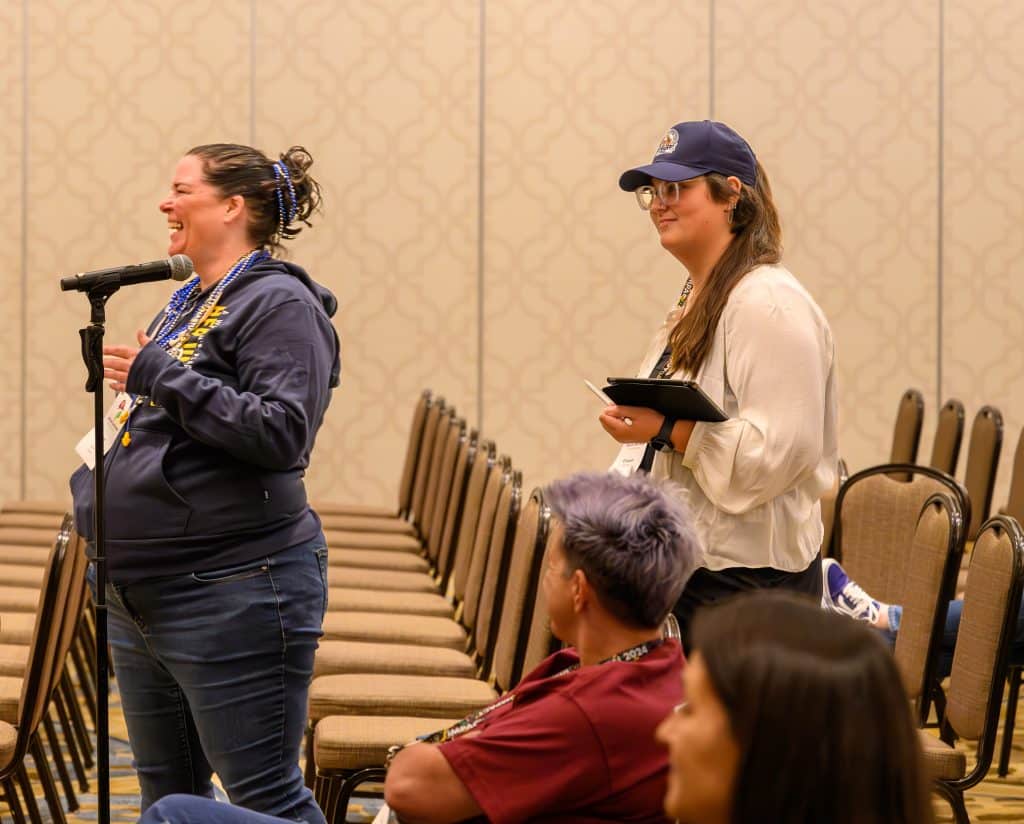
SMART Director of Special Projects Louise Medina and Local 66 member and International Training Institute (ITI) Recruitment and Retention Specialist Tammy Meyen joined three other sisters on the “Building a SISTERHOOD” breakout, which included a discussion on retention and its importance for bringing women into our trades. Different retention techniques can be used to build mentorship and support systems at the local and International level, and such techniques are crucial for growing union density — whether applied on the jobsite, in the hall or at the training center.
Affordable, accessible childcare is one of the most persistent barriers to the recruitment and retention of women in the trades. That being said, unions at the local and International level are working hard to develop solutions — from new maternity leave programs, like the one announced by General President Coleman during the SMART caucus, to lactation pods on jobsites, recently pioneered by SMART Local 66 in Seattle, to new childcare pilot programs across the country. SMART Northwest Regional Council member Tiffany Caulfield joined the “Childcare: Challenges and Solutions” breakout as a panelist.
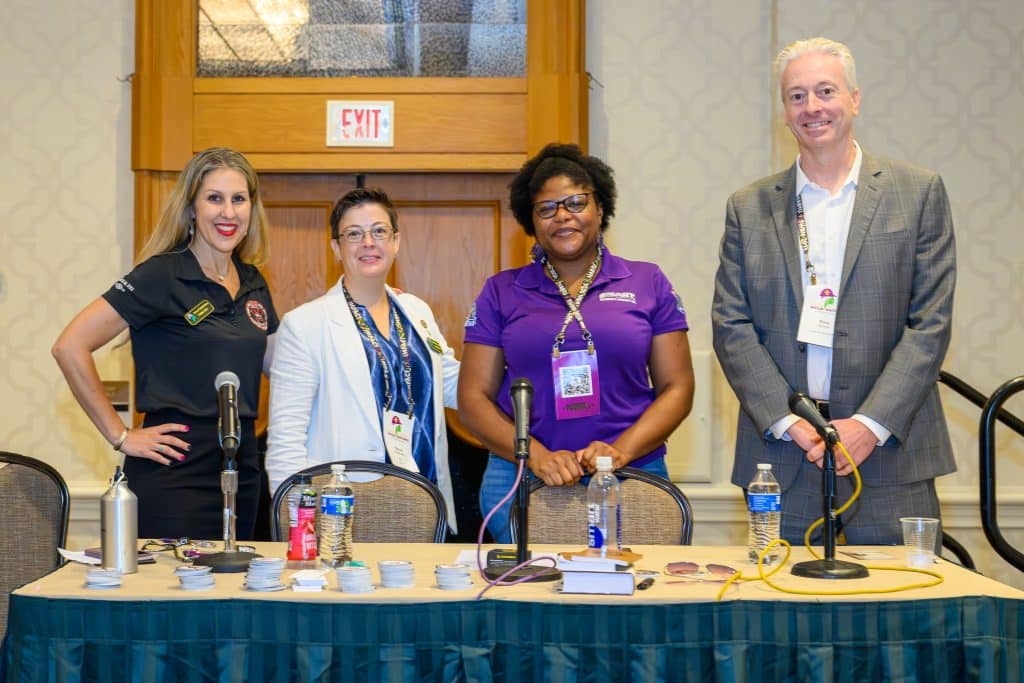
Women’s Committee Chair Shamaiah Turner took part in the “Union Leadership Structure and Why It’s Important” panel, an interactive session detailing leadership structures and opportunities at the local union and International level. And SMART Local 206 (San Diego, Calif.) member Annet Del Rosario, who also serves on the SMART International Women’s Committee, sat on the “LGBTQ in the Workforce” panel, an open workshop that welcomed LGBTQ+ union members and allies for a discussion on LGBTQ+ issues, success stories and how these members strengthen the labor movement. Panelists and attendees spoke frankly about the unconscionable harassment they have faced on jobsites, the importance of having true allies in the union hall, how they overcame obstacles in the trades and much more
“It doesn’t matter what trade we are — the higher [our numbers] are, the more our voices are heard,” Del Rosario declared. “We need to make a change — otherwise change won’t happen.”
As always, the conference was highlighted by Saturday’s TWBN banner parade, when the resounding echoes of marching feet, union chants and thousands upon thousands of tradeswomen joined the usual jazz soundtrack of New Orleans (including a band that marched alongside our sisters).
